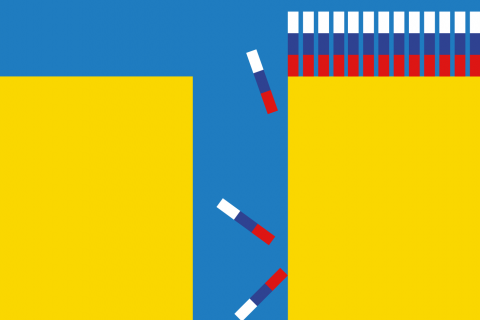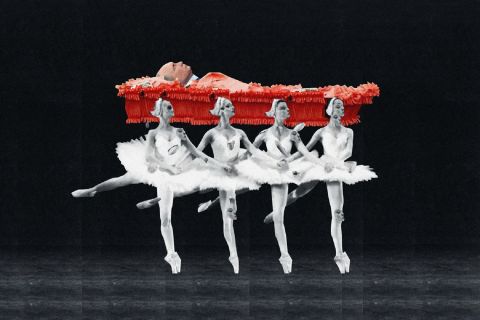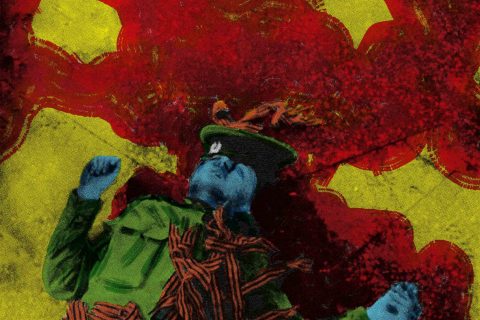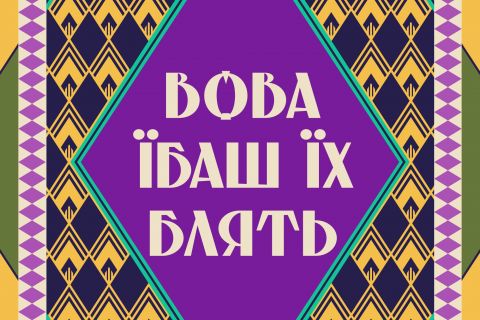
Rapid Reaction Art: Ihor Husiev’s World War III
For several months, Husiev has produced a work every day. He calls it rapid reaction art. The artist has been reflecting on the influence that Russian culture had on himself and Ukrainian society at large. He has been working with illustrations in old books, elaborating on them with well-fitting witticisms, or creating new covers himself. The artist told Bird in Flight his story of making art in a city that the occupiers crave.
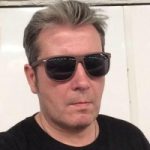
Ukrainian visual, performance, and installation artist and poet. Graduate of the Grekov Odessa Art School. Leader of the Art Raiders movement, founder of the Norma gallery. Exhibited since the 1990s, Husiev represents the new wave of contemporary Ukrainian art. He lives and works in Odesa.
— When the war started, I felt like an urban animal that was hunted round the clock. I found out a lot about myself and the people I know. All my usual moods, including musing and meditation, turned into rage.
I stopped working in one of my studios, the one by the sea. The view of a Russian squadron on the horizon was rather overwhelming. On the bright side, the Ukrainian language is now in vogue in Odesa, something that no one witnessed in a thousand years or so. The city has hardly any visitors, but it’s still something. They are swimming in the sea swarming with Russian mines.
Everyone has their own kind of war. A soldier has one, a volunteer, another, and an artist, yet another. My main weapon is a regard that scans reality. For all their thirst for blood, the enemy that came to our land is, in a measure, dumb and laughable. So the main task that I have been working on is to create immediate narratives. The metaphysical that I used to search for in my art before the war has been superseded by a different approach. It’s something that can be described as rapid reaction art, a phrase that in Ukrainian folds into MYSHVYR.
I stopped working in one of my studios, the one by the sea. The view of a Russian squadron on the horizon was rather overwhelming.
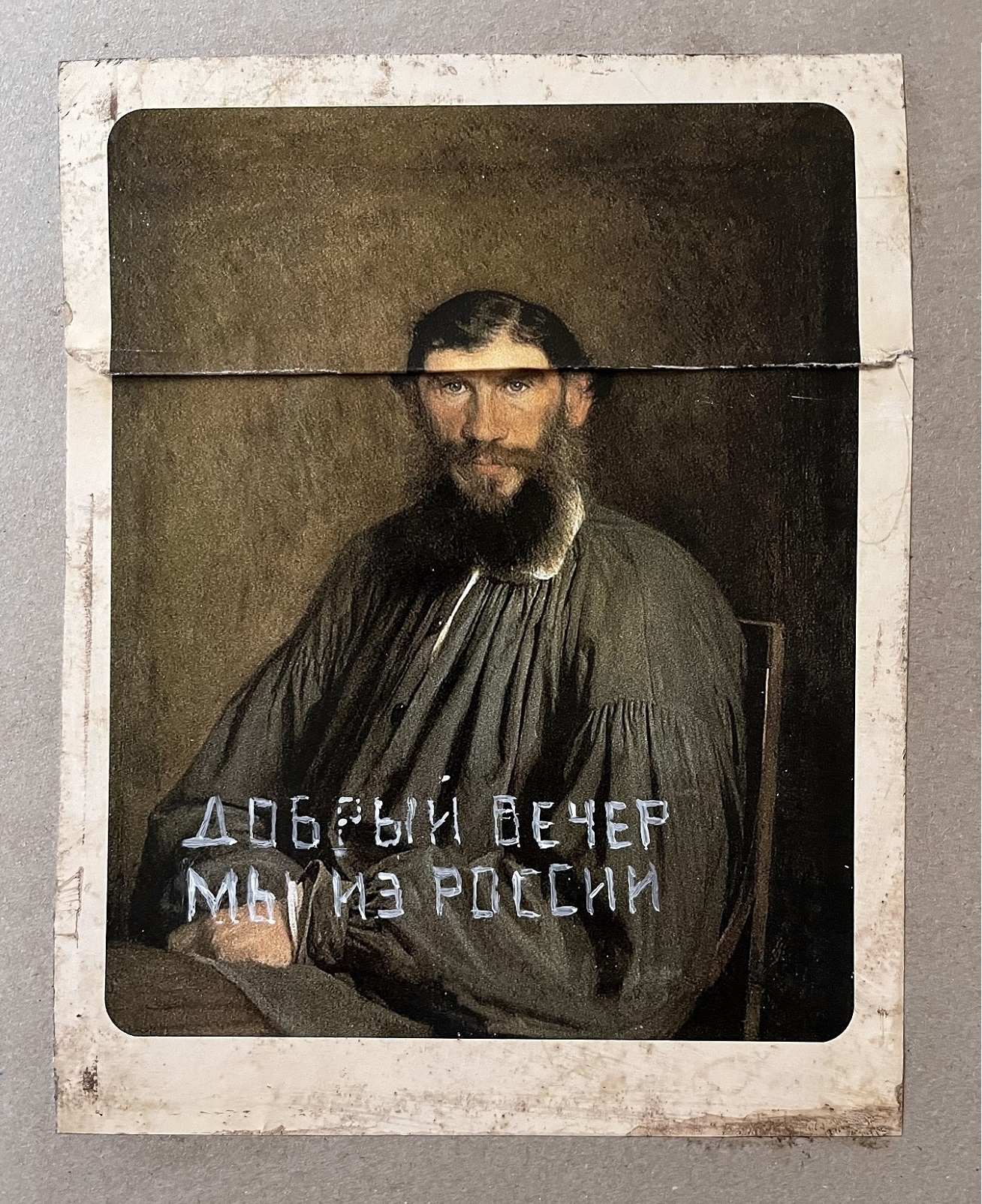
“Good evening, we are from Russia” written on a folded portrait of Leo Tolstoy in a reference to the phrase "Good evening, we are from Ukraine," which became a popular greeting since the start of the full-scale war.
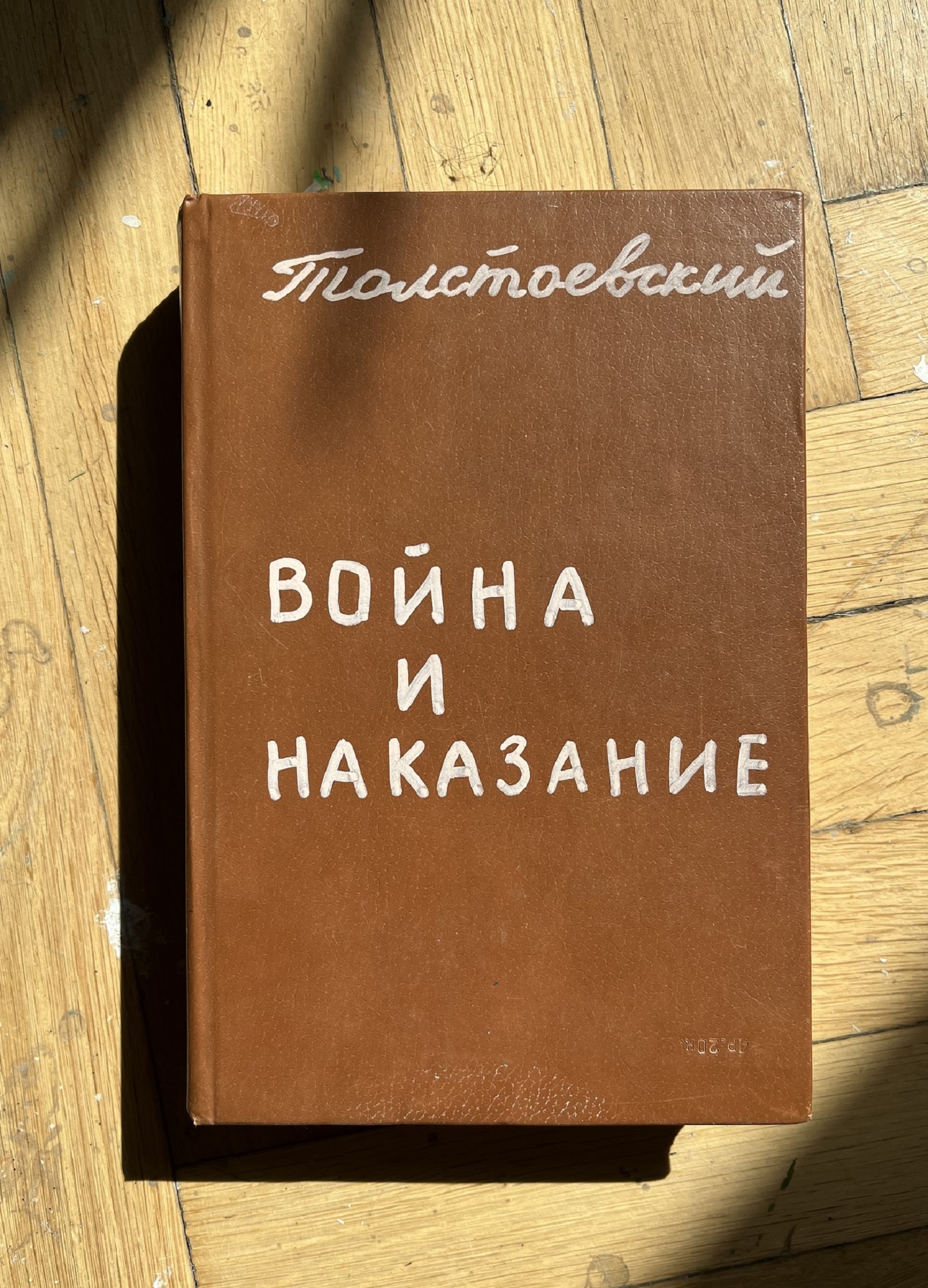
Tolstoyevsky "War and Punishment"
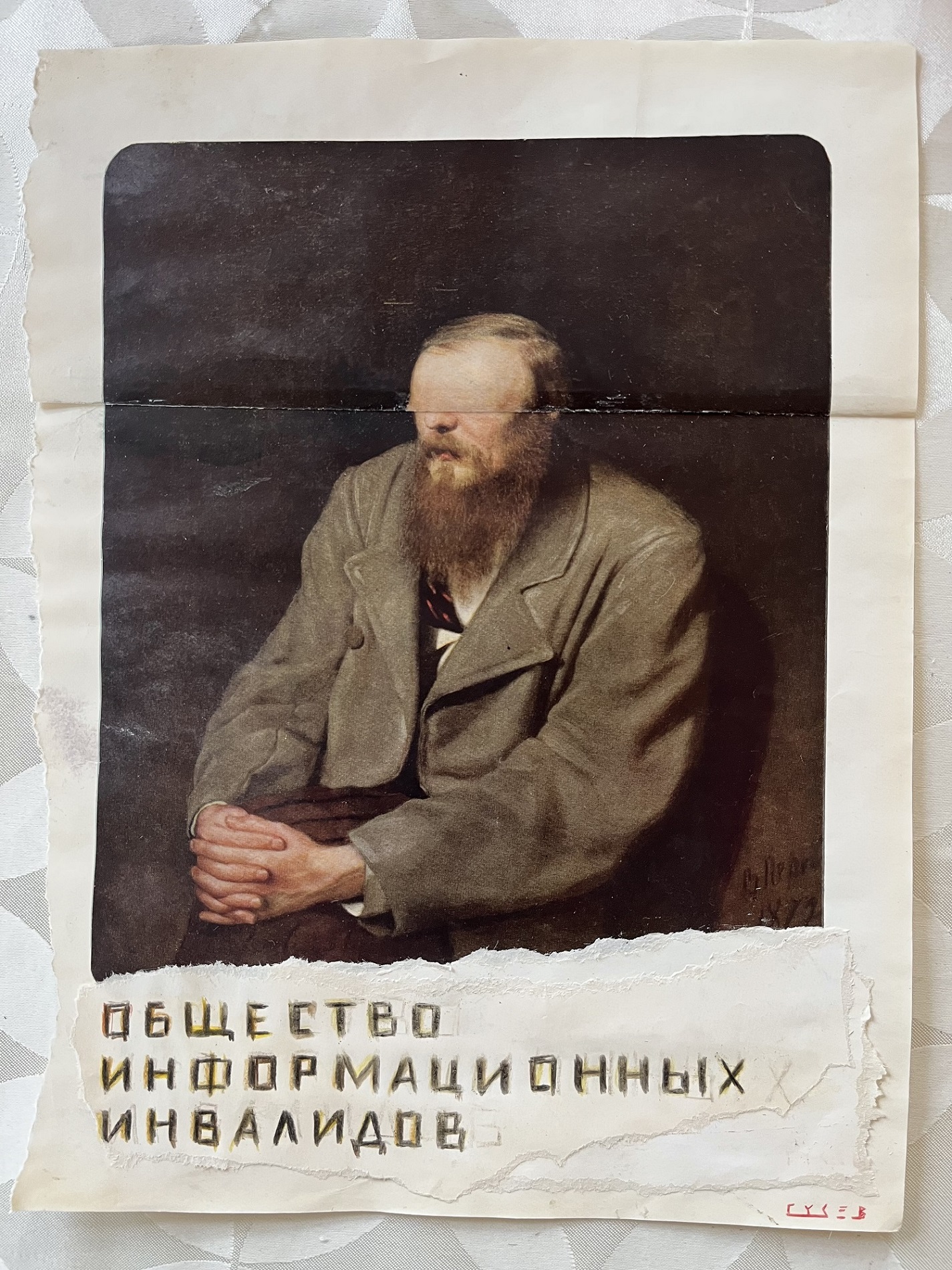
“A Society of Informationally Disabled People” written on a folded portrait of Dostoyevsky

“Kabaeva, Skabeyeva.” Kabaeva is said to be Putin’s secret wife, and Skabeyeva is a TV presenter dubbed "the Iron Doll of Putin TV"
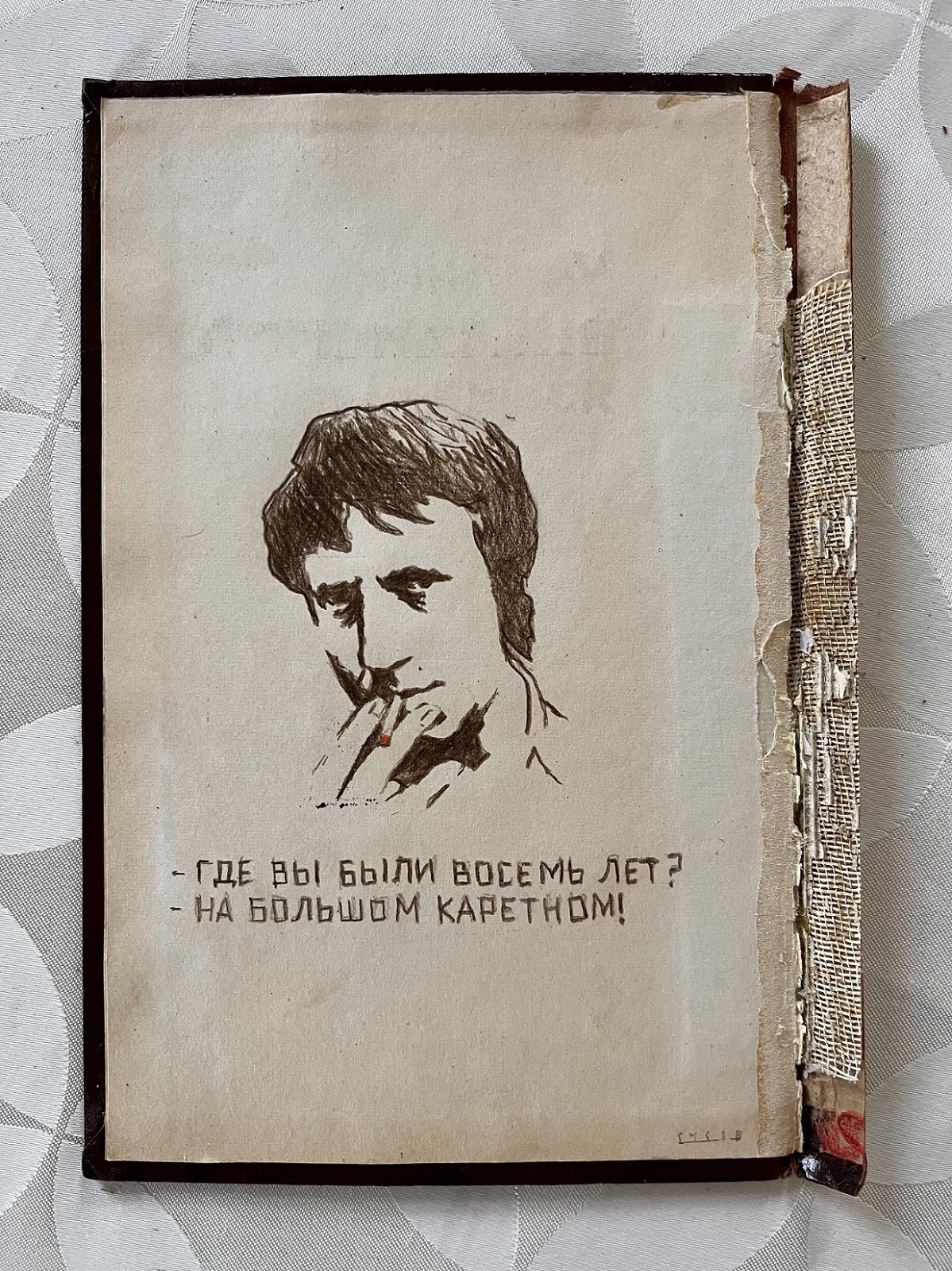
“—Where have you been for eight years? — On Bolshoi Karetni!” is a play on the lyrics of Vladimir Vysotsky’s song about the Bolshoi Karetni street in Moscow. Russians have attempted to ask the question as a propagandist suggestion that Ukraine’s people ignored the war in Donbas, which started in 2014
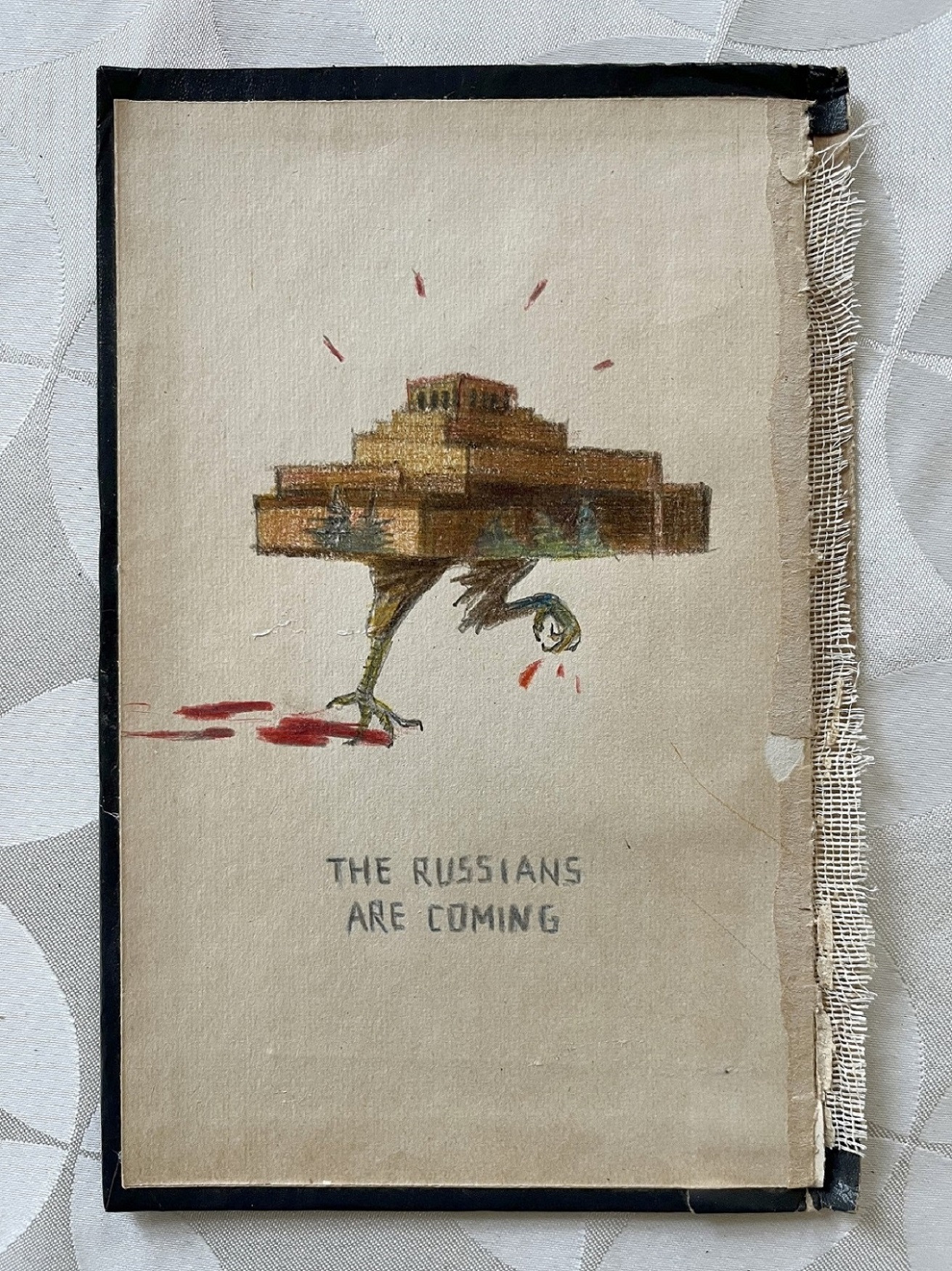
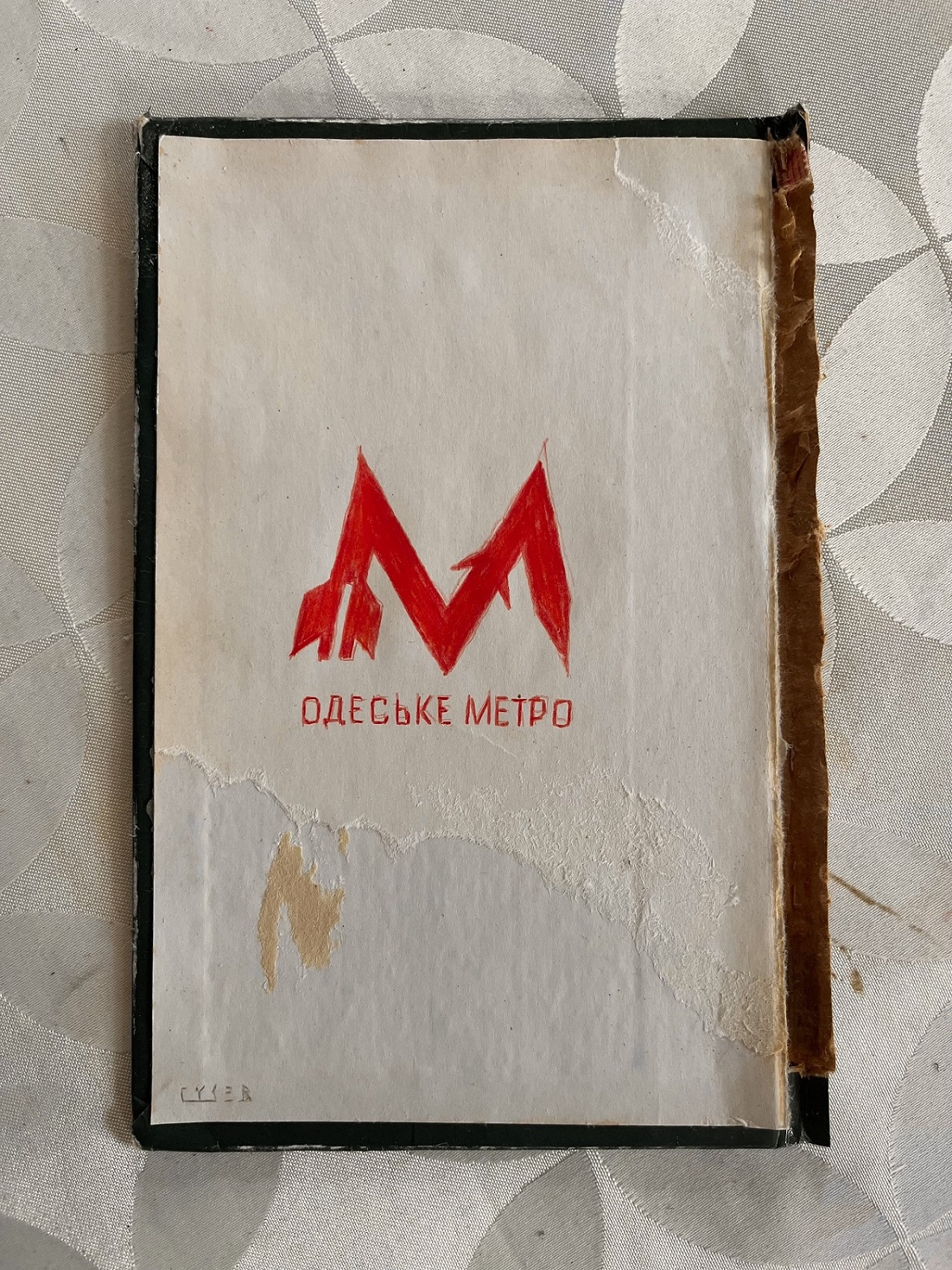
"The Odesa Underground" Famously, Odessa does not have a subway system.
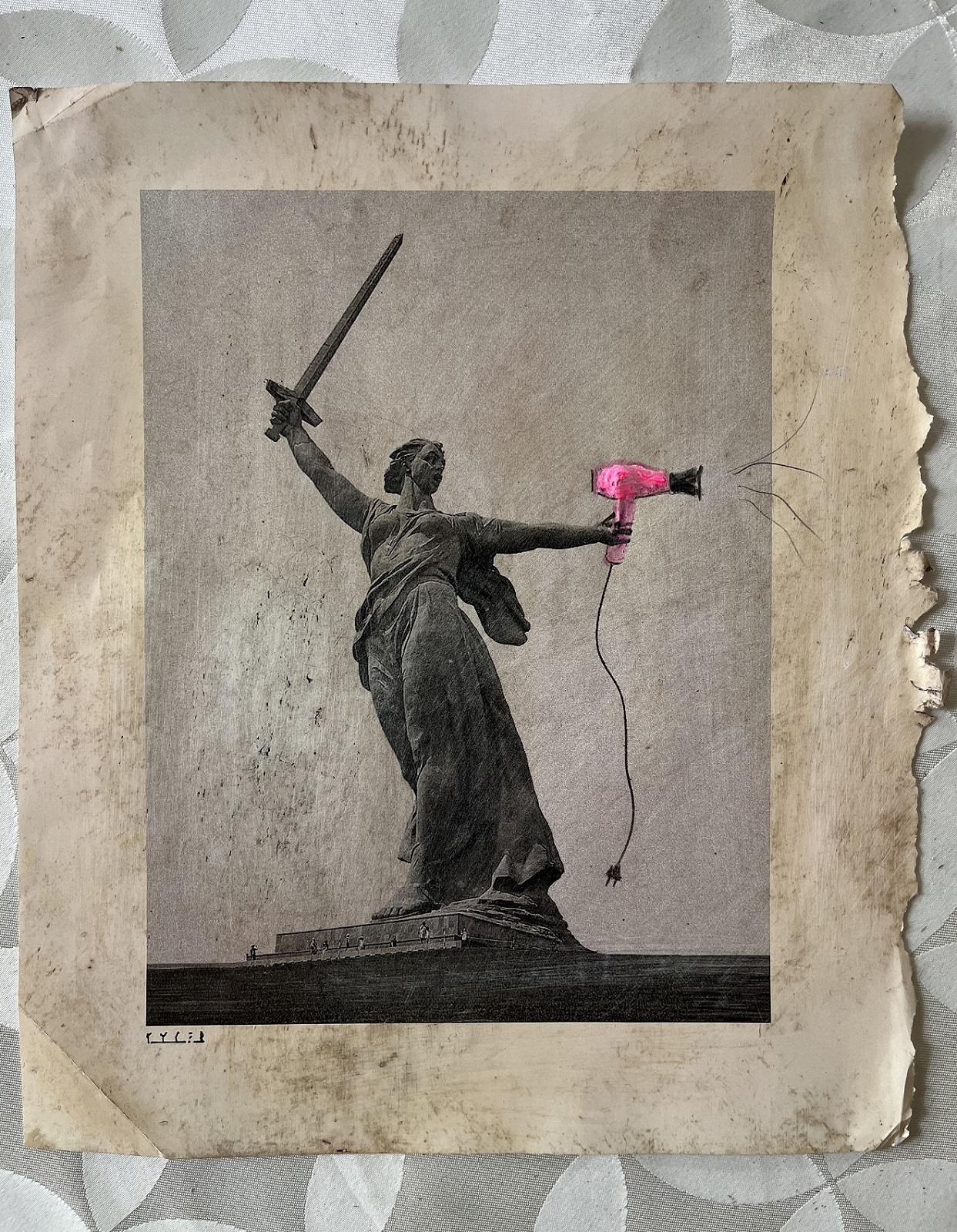
A photograph of The Motherland Calls, a statue in the Russian city of Volgograd, with a looted hair dryer drawn over it. Electronics and items looted by Russian troops are referred to throughout the series.
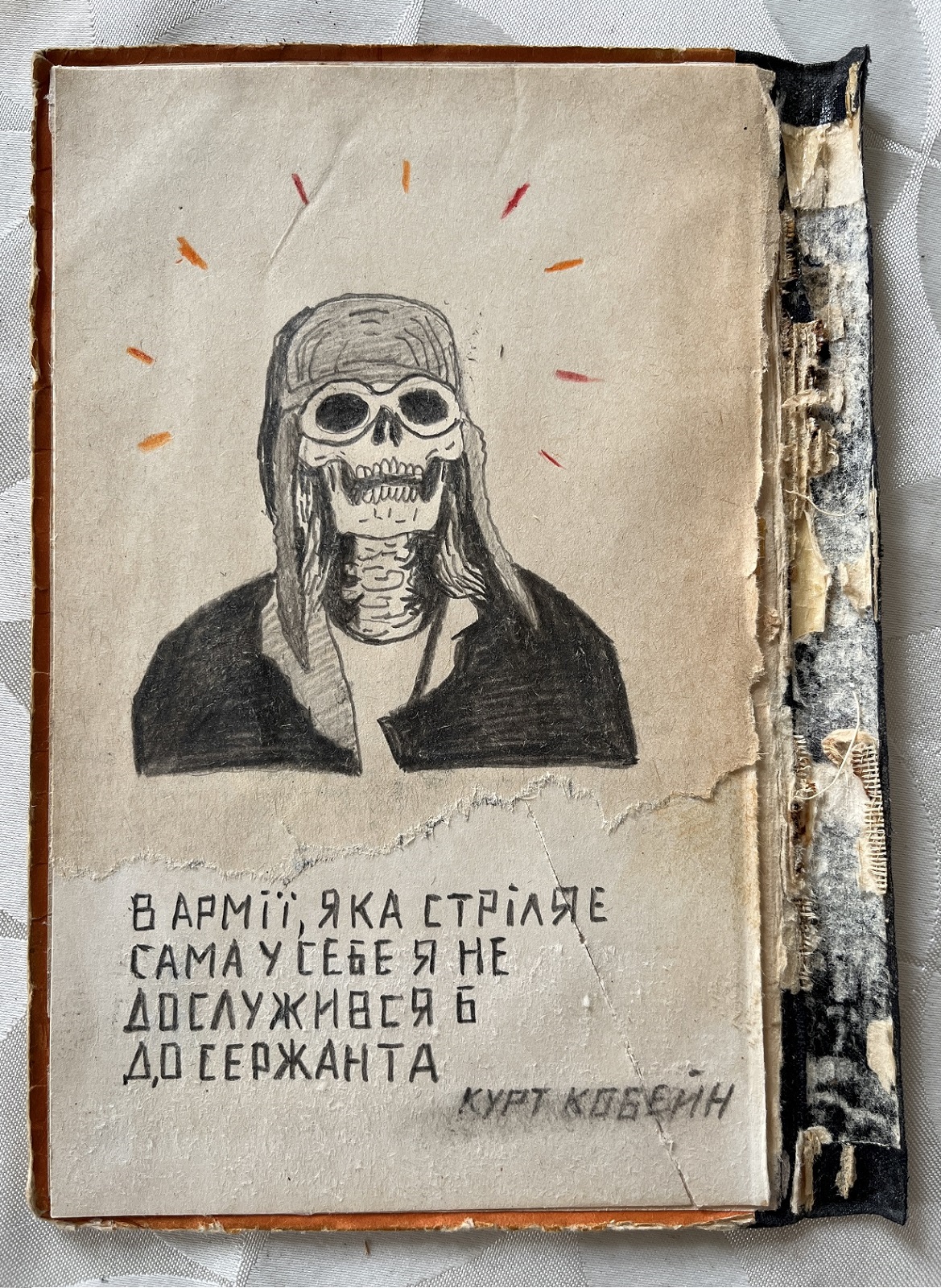
“In the army that fires on its own soldiers, I wouldn’t have made a sergeant” (Kurt Cobain)
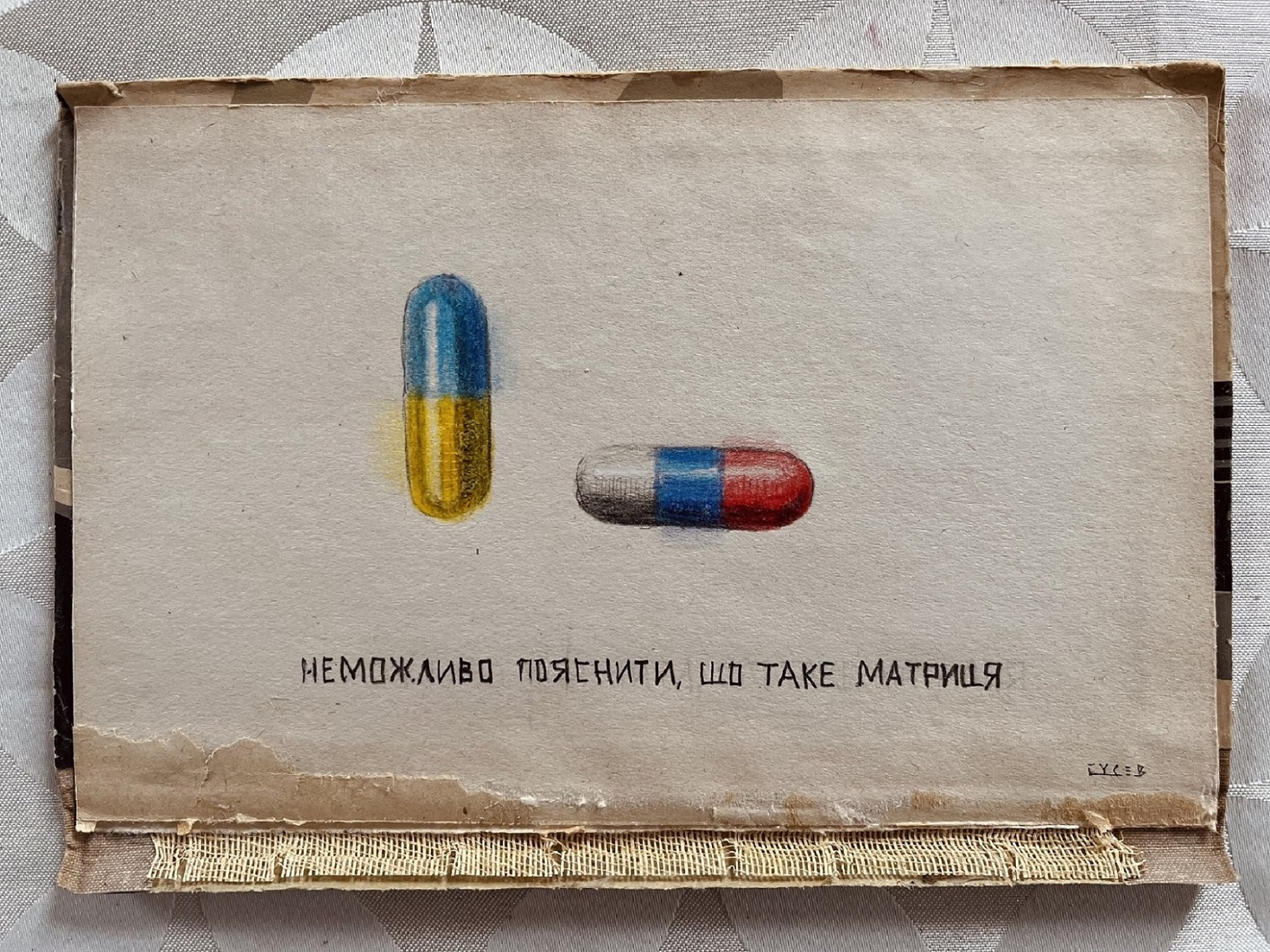
“No one can be told what the Matrix is”
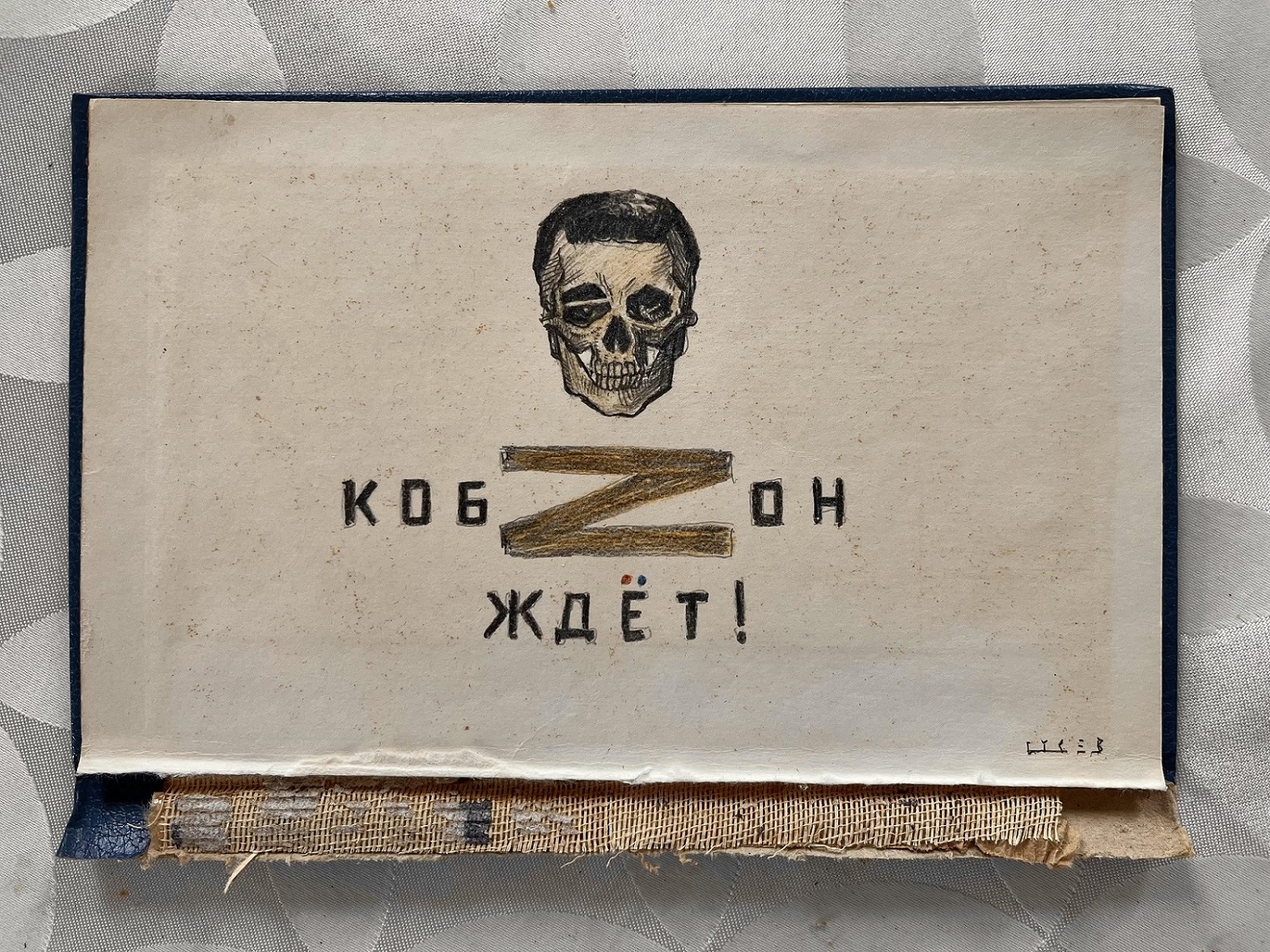
“KobZon is waiting!” Iosif Kobzon is a deceased singer who was a vocal supporter of Russia’s annexation of Crimea and war in Donbas
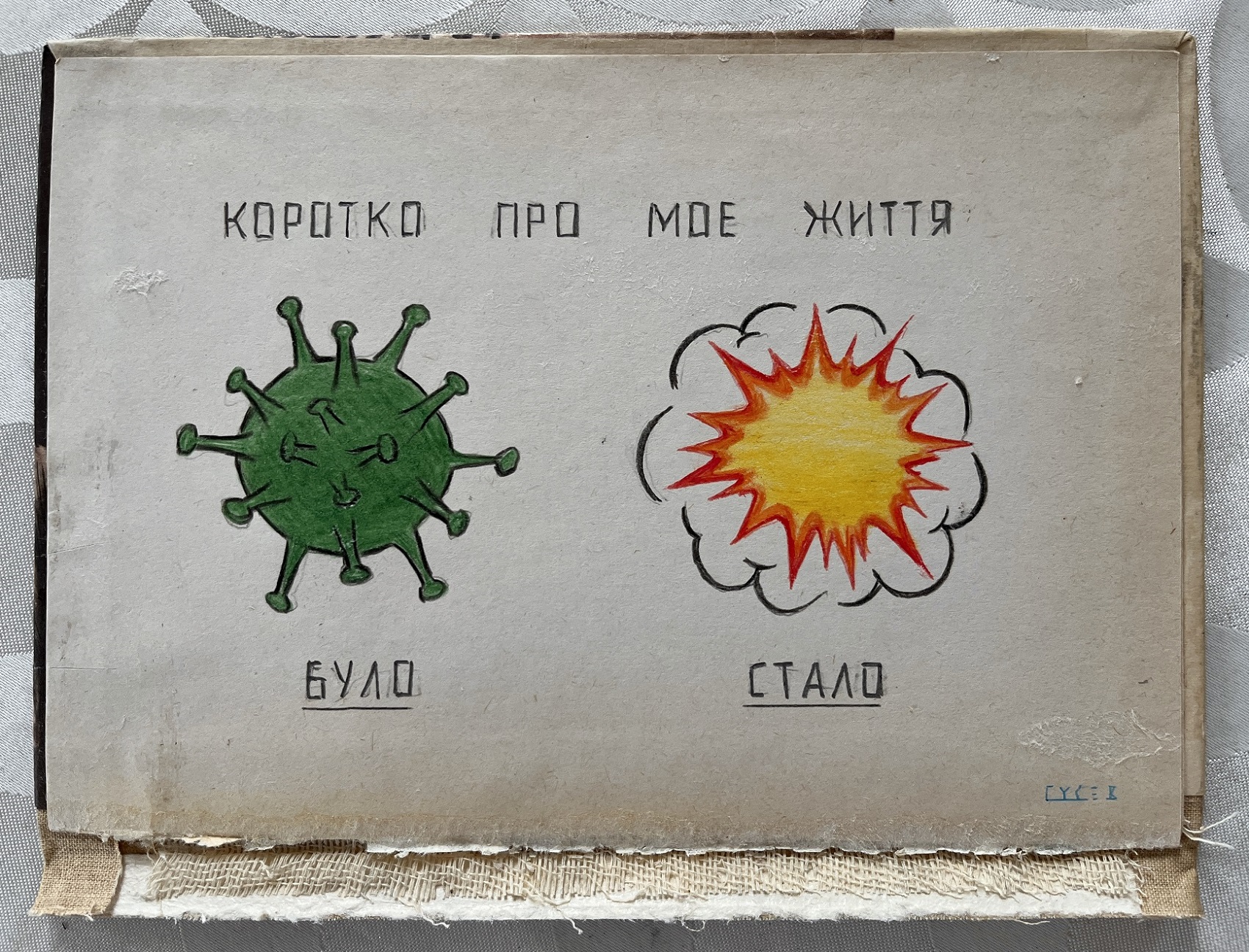
“My life in a couple of words. Then, now”
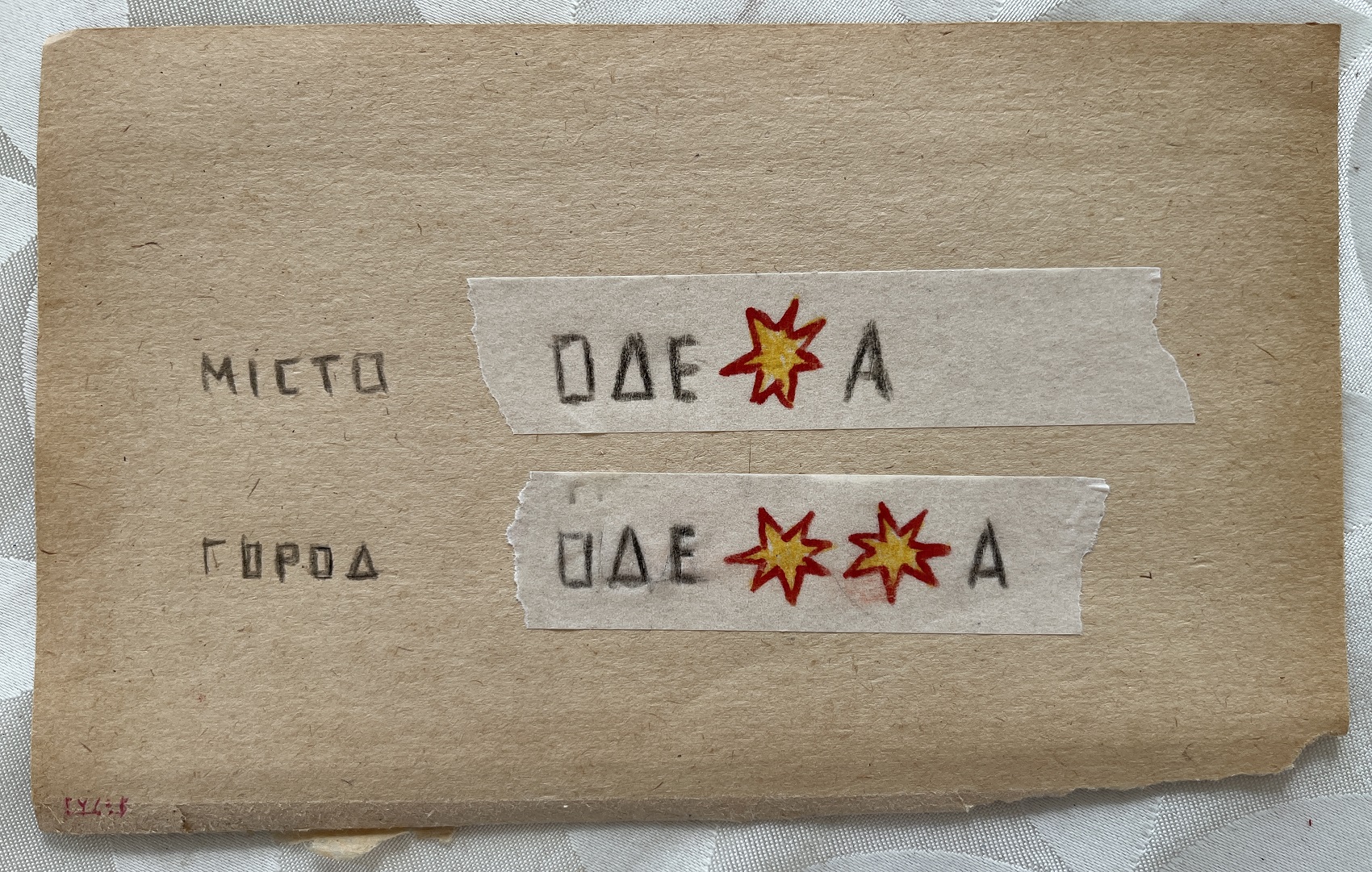
“City (in Ukrainian): Odesa, City (in Russian): Odessa”
If I had called it ‘a matter of public interest,’ that would have sounded rather stiff, like something a Soviet pen pusher would have said. Rapid reaction art, on the other hand, is exactly what almost every Ukrainian artist is doing these days. To make such art, one requires an altered state of consciousness, the prerequisites for which are:
— air raid sirens, salvos, explosions;
— the latest news one can see from their own windows or online;
— the desire to express all that you think about this blasted war.
With all the boxes checked, hurry up, add the finishing touches, and post it online while it’s still hot and your device hasn’t died. Now we find ourselves reinterpreting virtually everything: stereotypes, patterns of human behavior, our attitude towards culture and society—and doing it in the military buddhism mode: right here, right now, under fire and bombs.
Sometimes, when curfew is days long, you have to use whatever you can find. Which is mostly old art books and literature from the nearest flea market. I don’t even view it as vandalism. Metaphorically speaking, it’s sort of a search for a new glance on a favorite Soviet movie whose director has supported the ‘special operation.’ As for canceling Russian culture at large, I’d start with adorning the Pushkin and Catherine monuments with disco balls. Stylish and fun.
Sometimes, when a curfew is days long, you have to use whatever you can find.
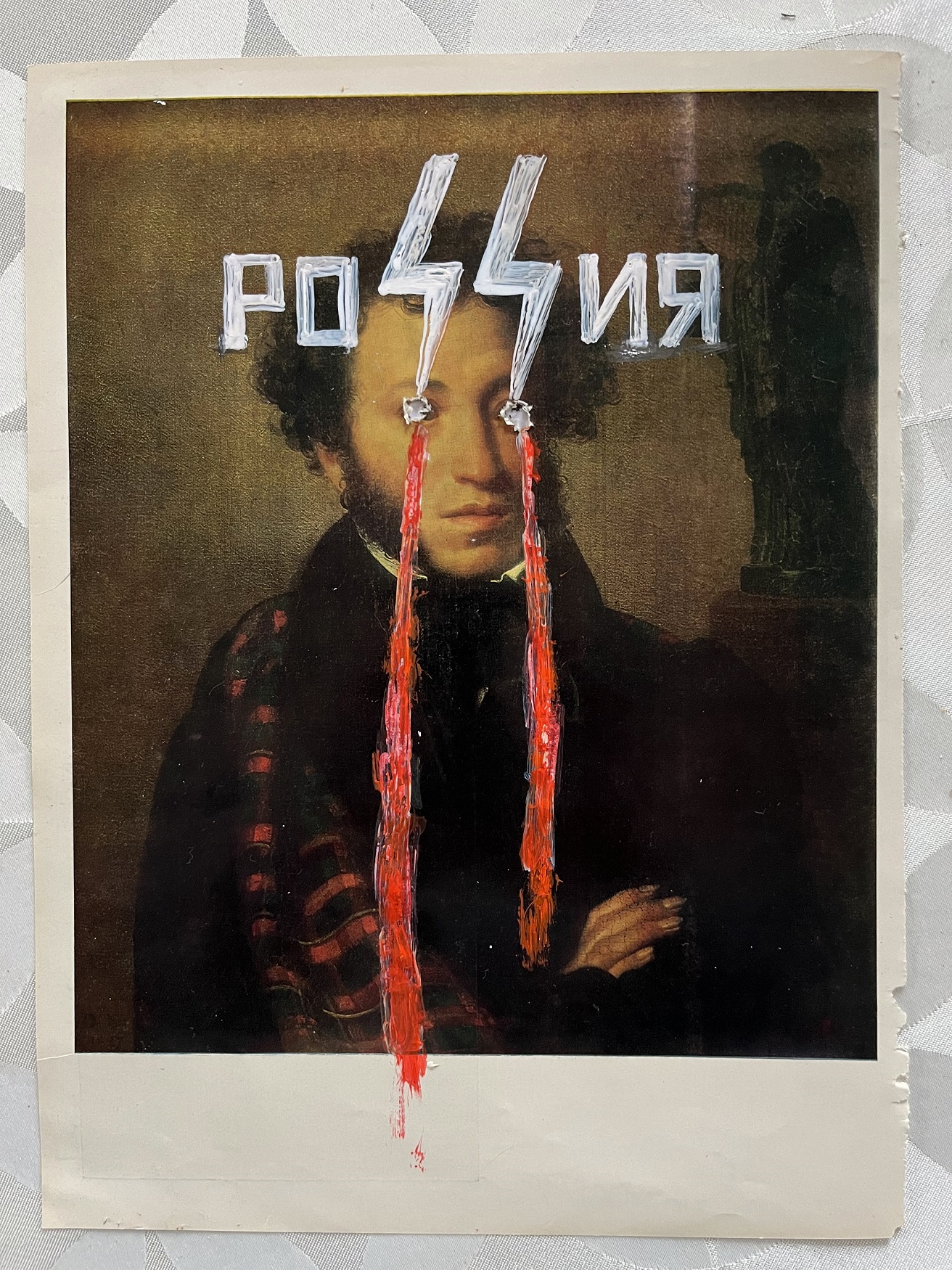
“Ruϟϟia” written over the portrait of Pushkin
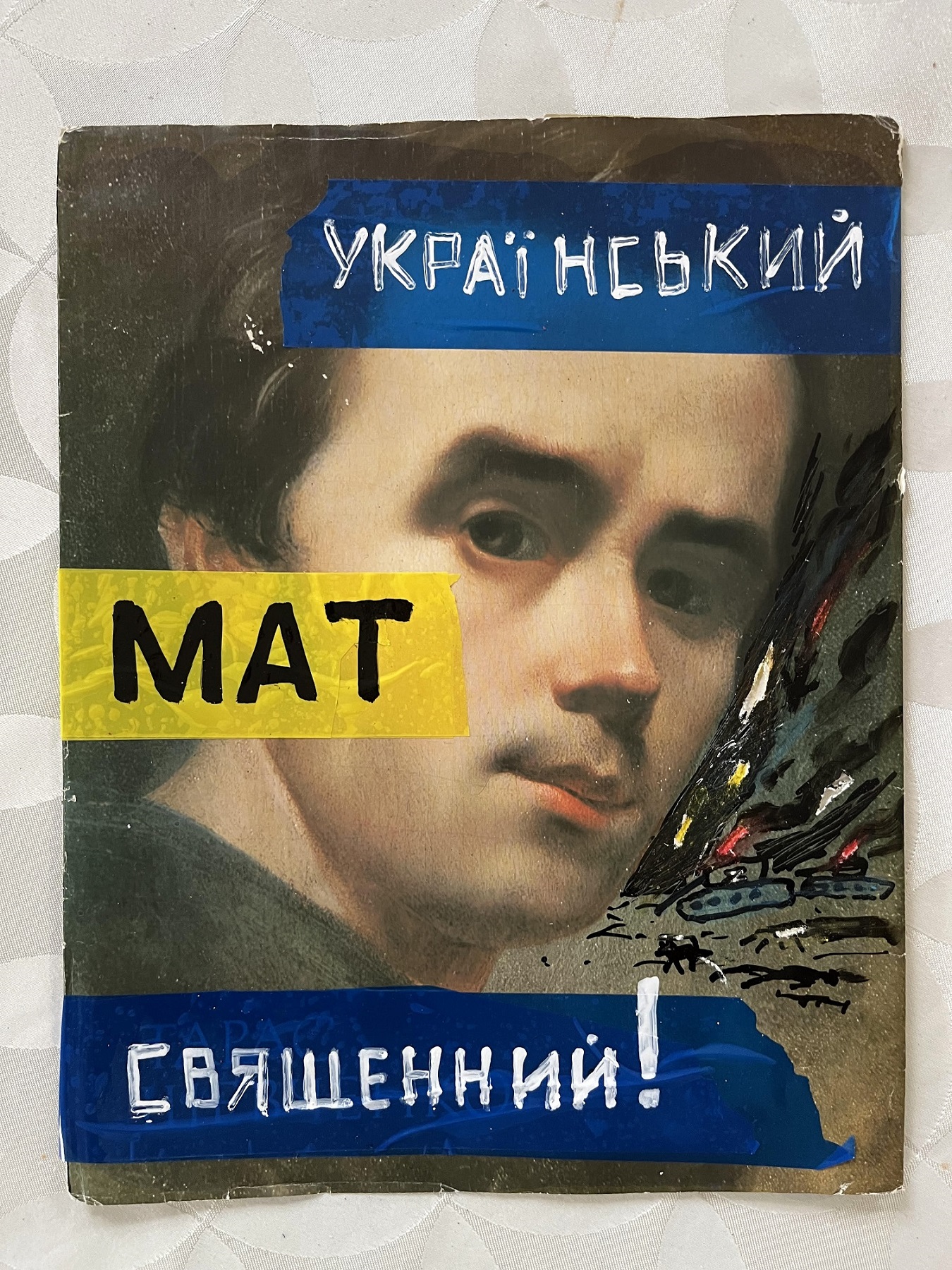
“Ukrainian swear words are sacred!”
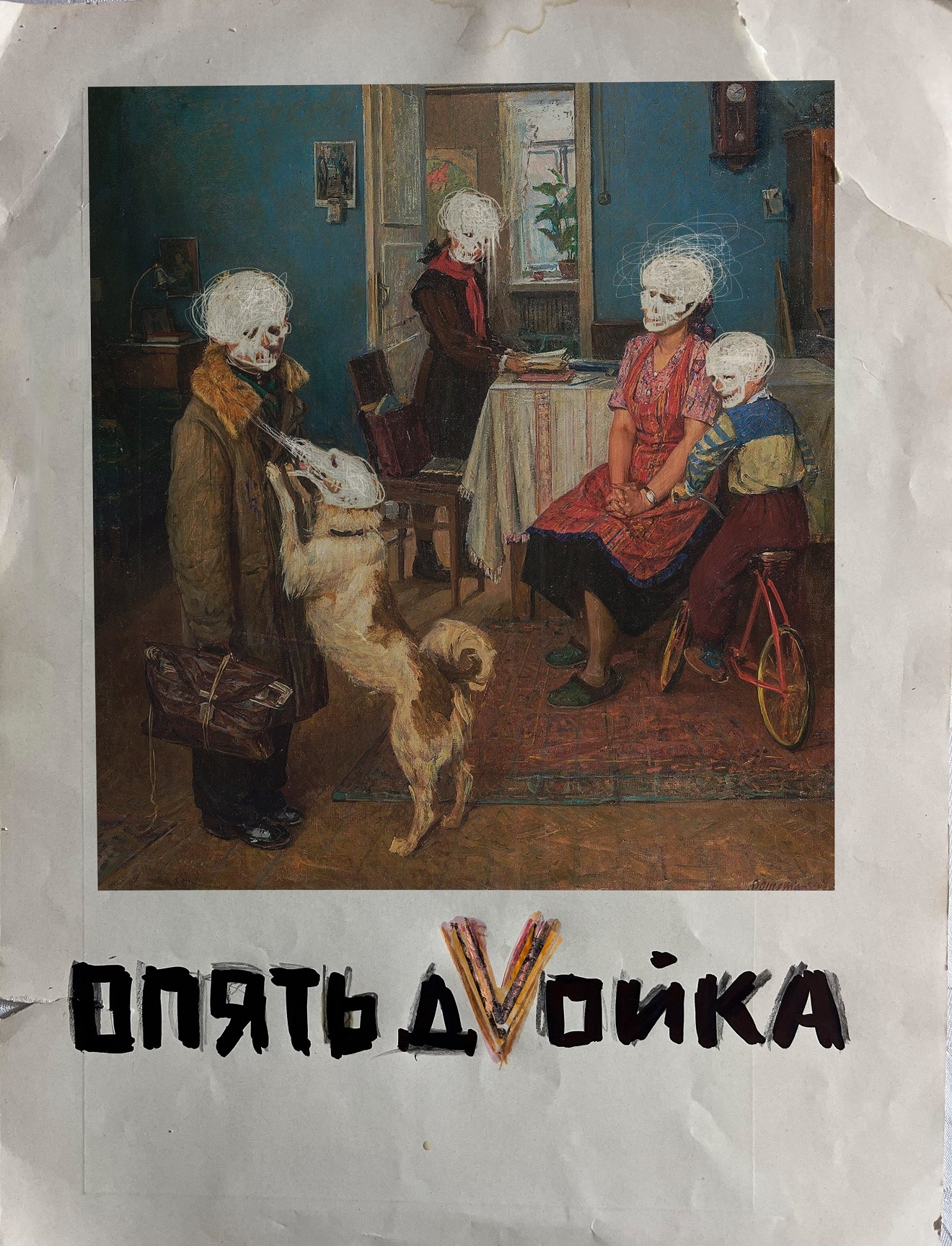
“Low Marks Again” (spelled with a V: “LoV Marks Again”) is an altered reproduction of the painting by Russian artist Fyodor Reshetnikov
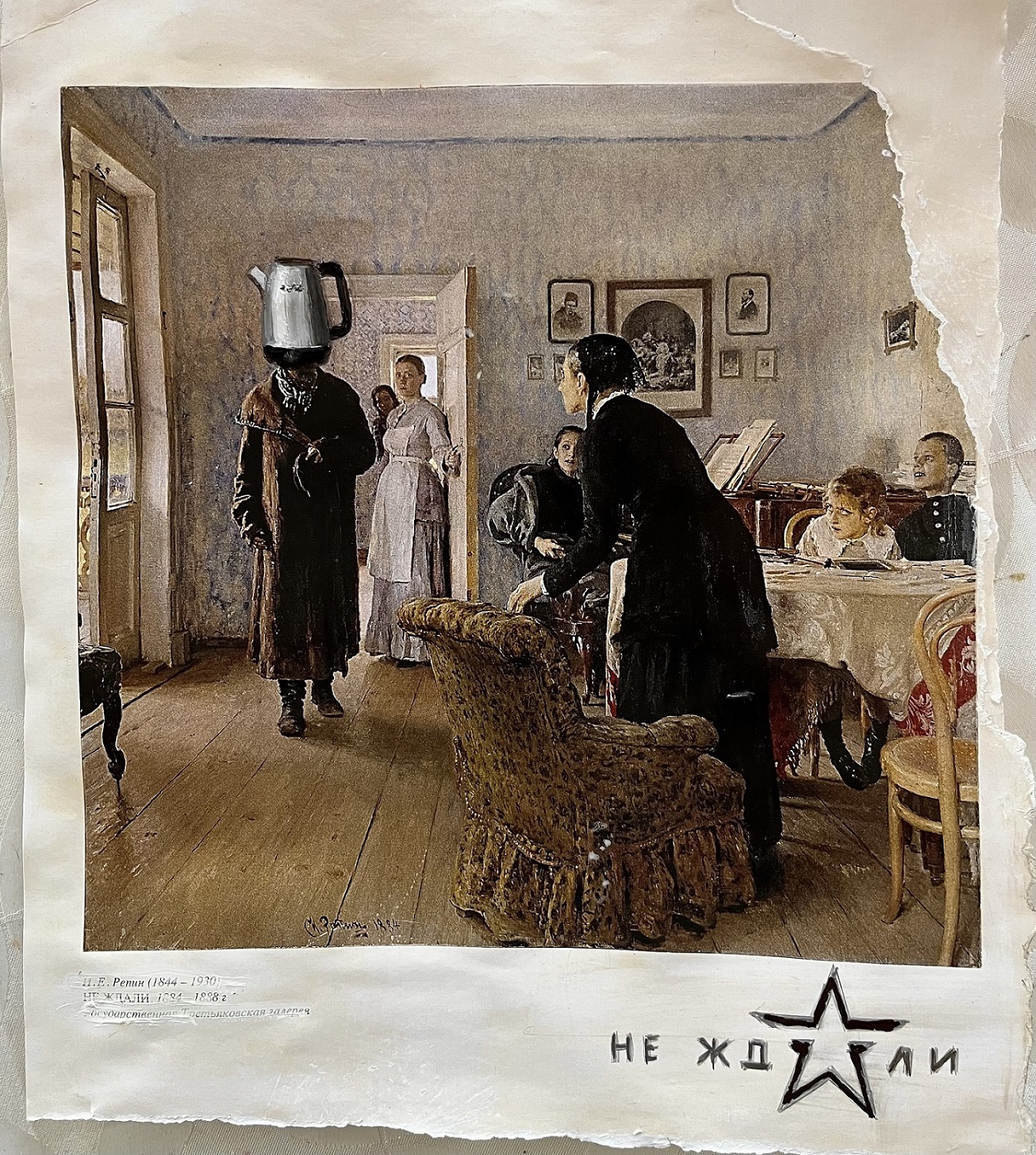
“They Did Not Expect Him” (where the A in the original title is replaced with the logo of the propagandist Russian TV channel Zvezda) is an altered reproduction of the painting by Russian artist Ilya Repin
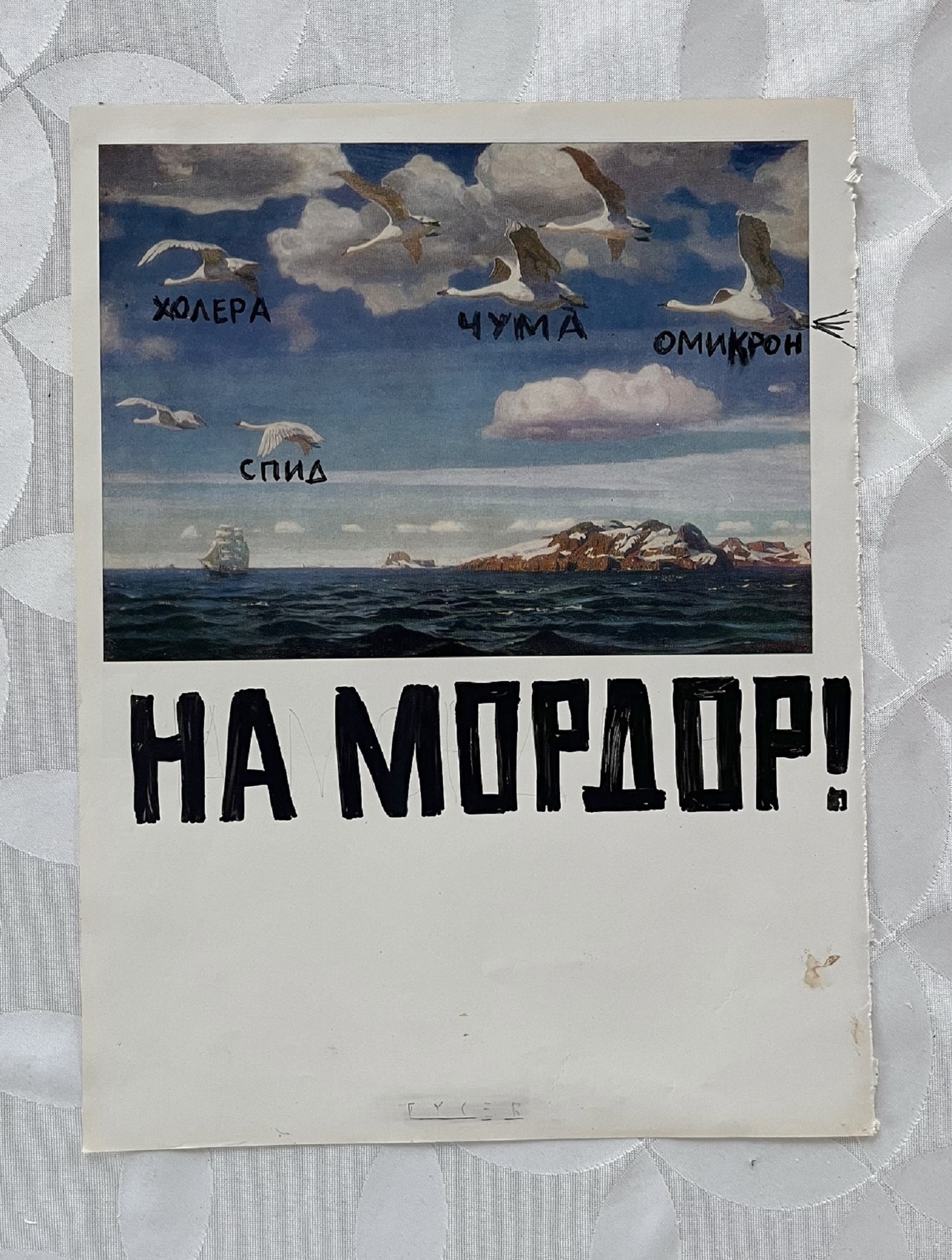
The words “Cholera, plague, Omicron, AIDS, TO MORDOR!” are written on a reproduction of “In High Azure” by Russian artist Arkady Rylov. This is a reference to Russian propaganda scaring people into thinking that Ukraine uses geese and other birds as biological weapons
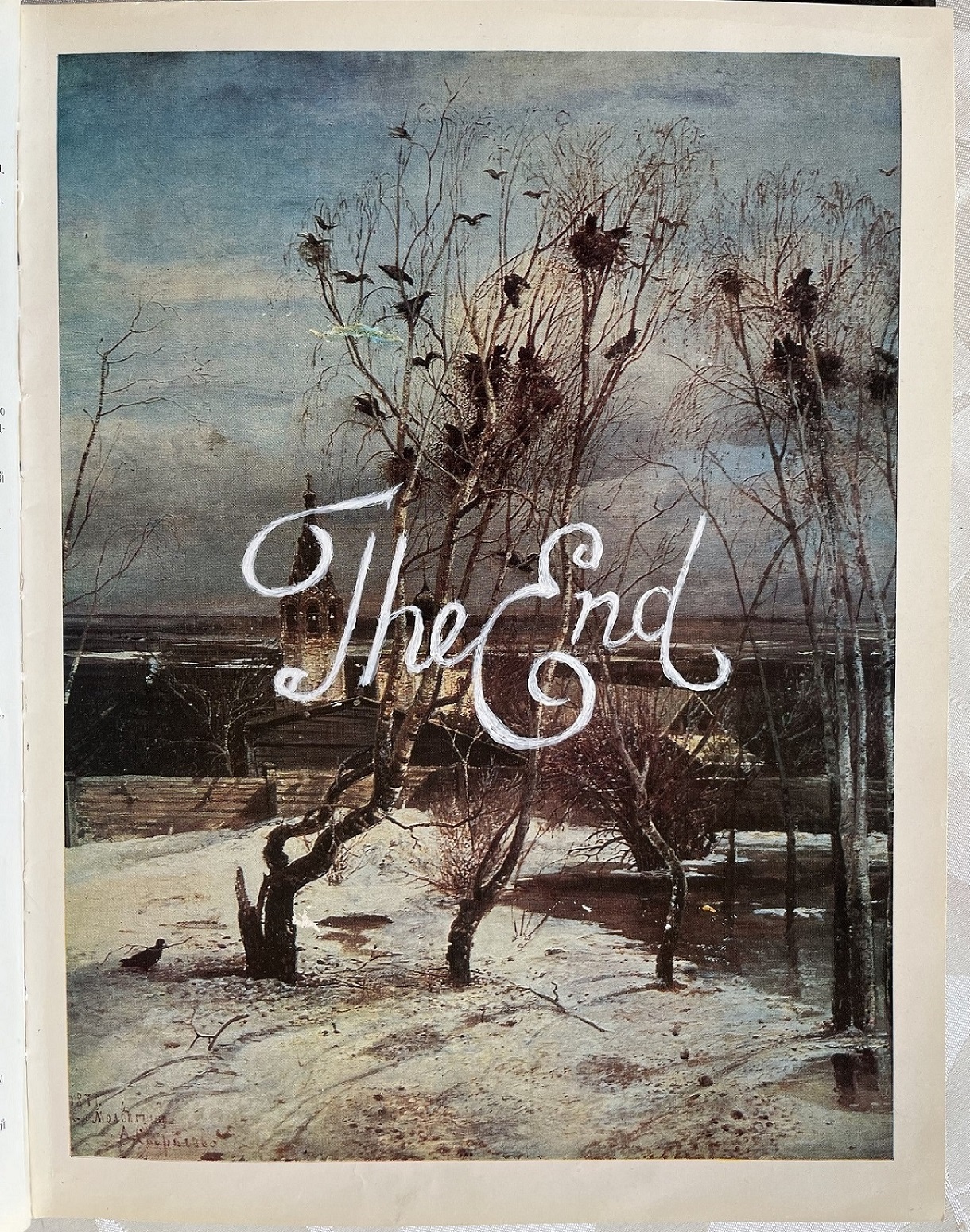
An altered reproduction of Alexei Savrasov’s “The Rooks Have Come Back”
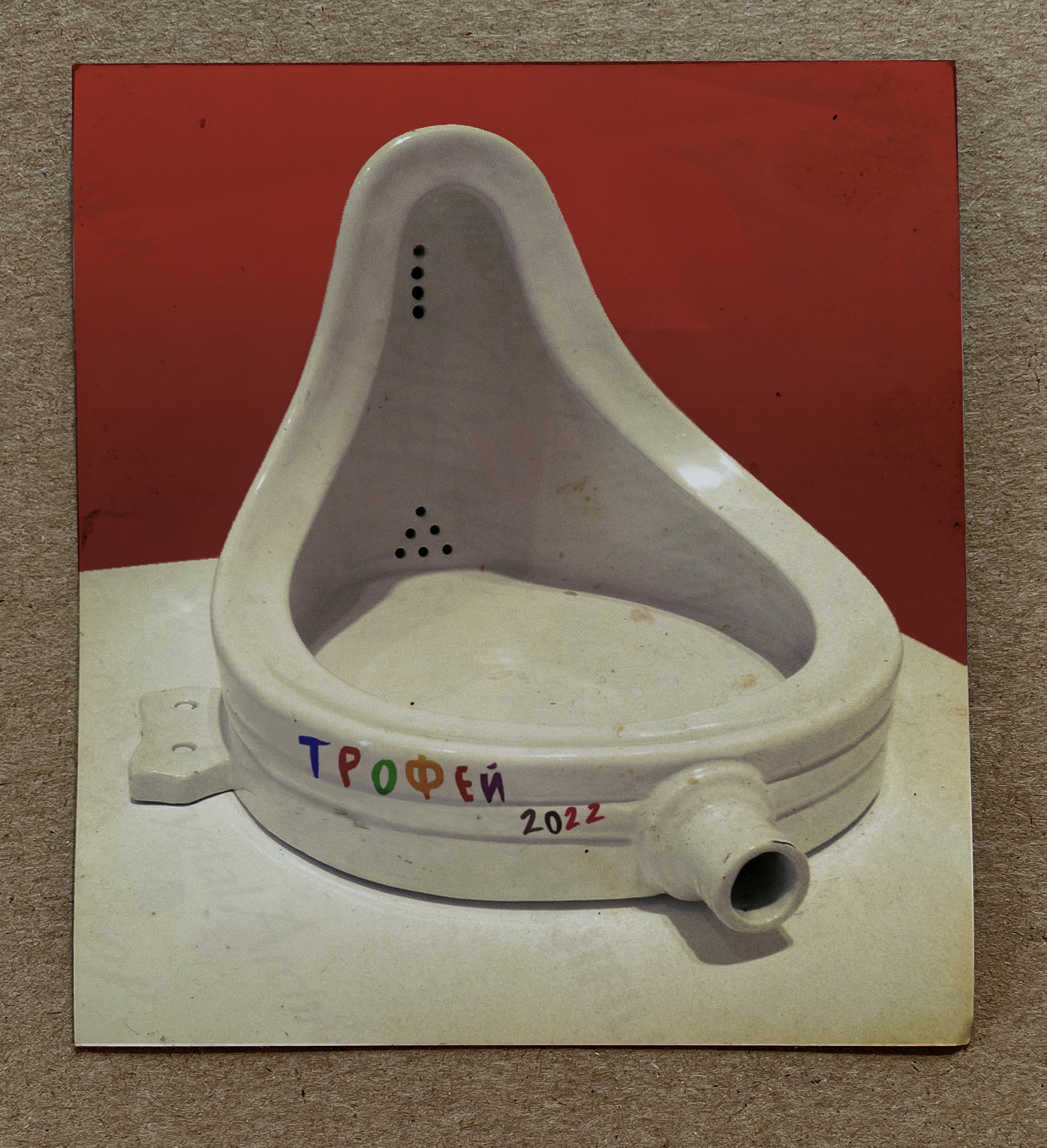
“Trophy, 2022”
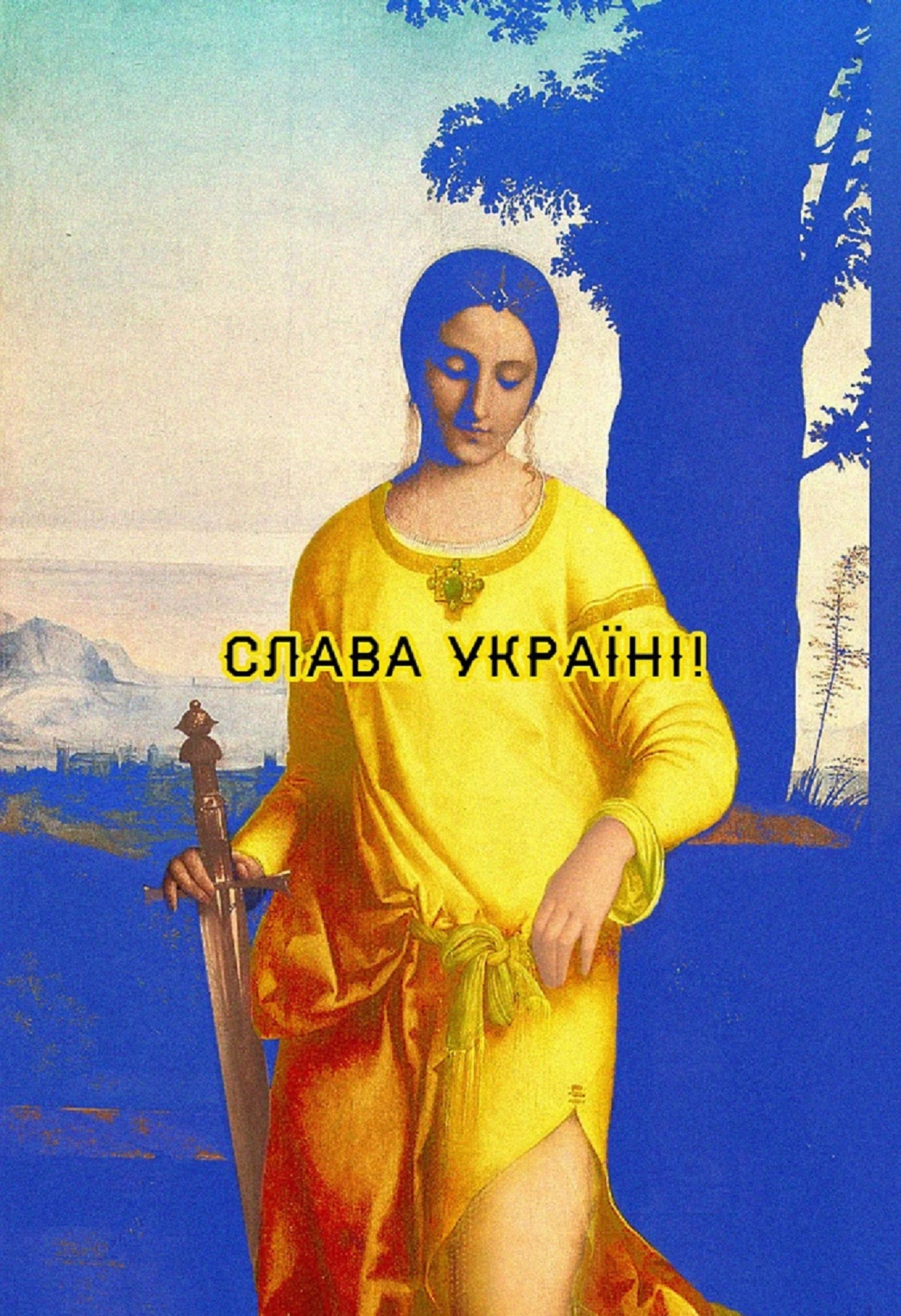
“Glory to Ukraine!”
In Russia, I only have my friends’ friends left. But to be ready to admit that you are also to blame for all the chaotic madness that Russia has been spreading, you need to be a special kind of brave. Unfortunately, such bravery wastes away when you live in comfort. So all I can wish the Russians is to get rid of their multiple insecurities. Or rather, multiple rocket launchers.
So all I can wish the Russians is to quickly get rid of their multiple insecurities. Or rather, multiple rocket launchers.
My most powerful visual impression during the war has been the Ukrainian flag, which became a worldwide symbol of patriotism and love for freedom. Of course, it’s a trend of our time, but it’s still nice to see it be one.
The works from the World War III series were shown in Berlin, Prague, and Rome and are to be exhibited in Amsterdam, Brussels, and Vienna. I think there’ll be enough of them left to hold an exhibition in Ukraine when they come back from Europe.
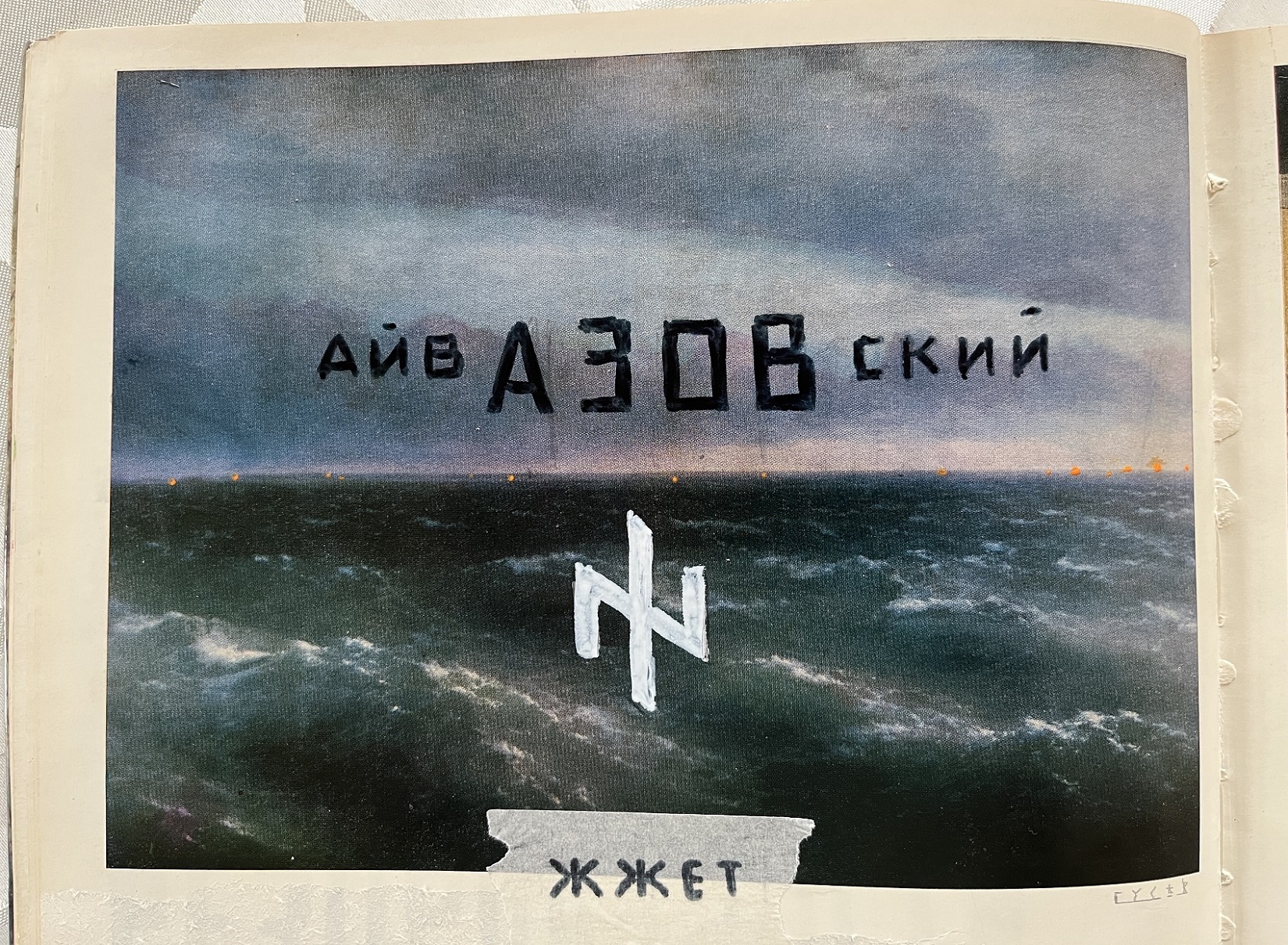
“AivAZOVsky rocks” and the logo of the Azov battalion in a collage with a reproduction of “The Black Sea” by Ivan Aivazovsky, who lived in Crimea and had Armenian and Ukrainian roots
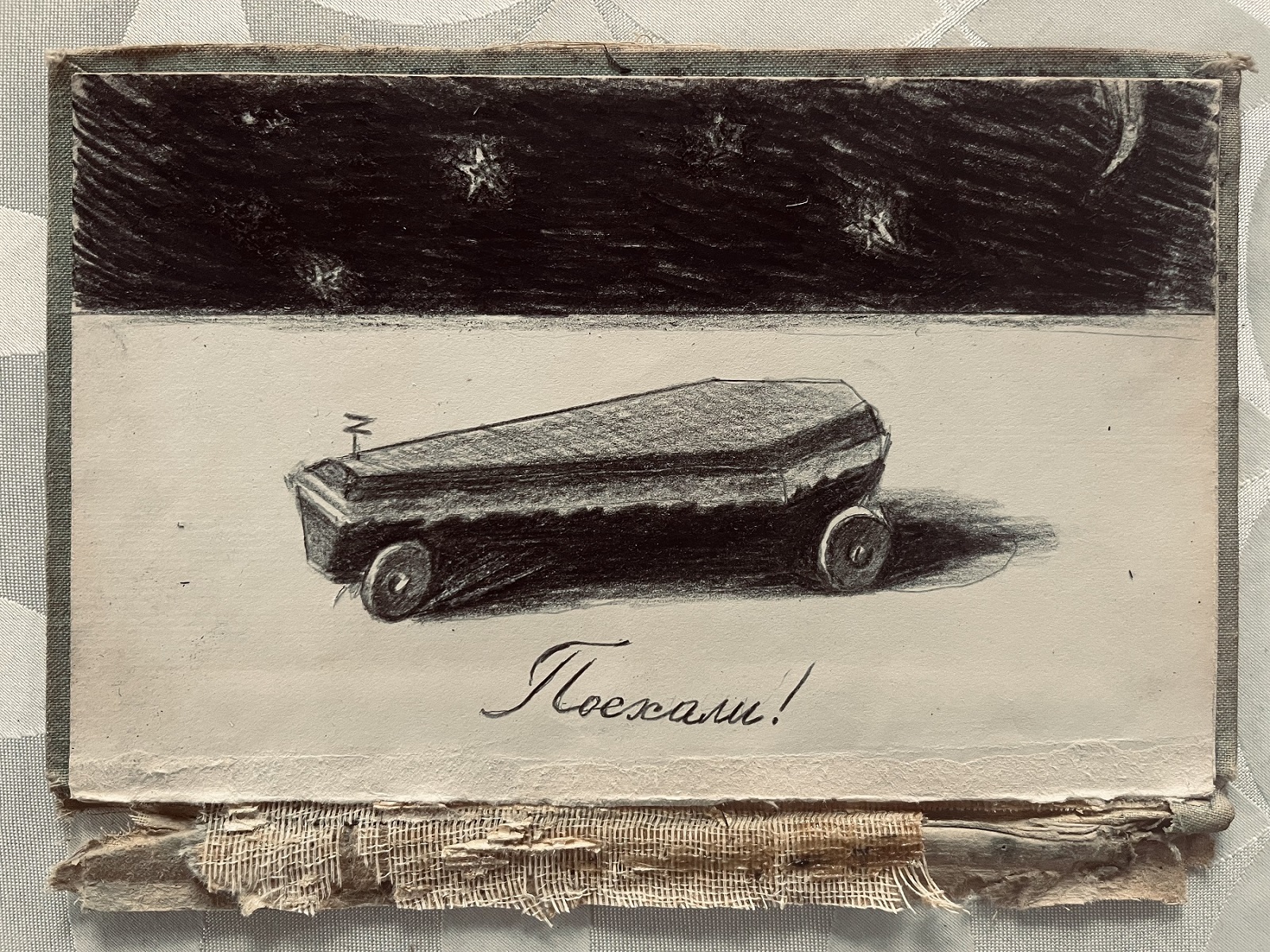
“Let's go!” was what Yuri Gagarin said before he lifted off the ground and into space
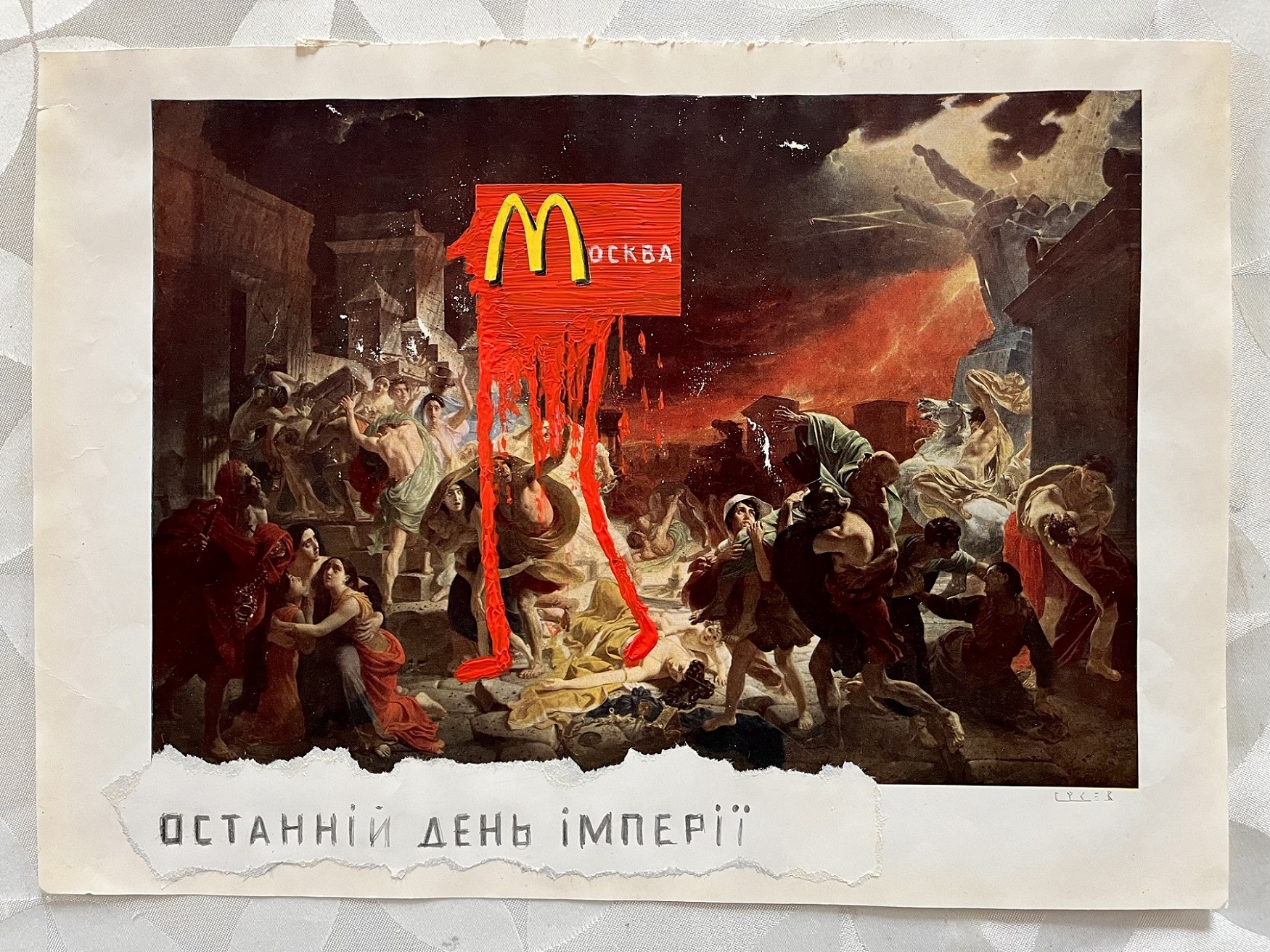
“Moscow; The Last Day of the Empire” in a collage with a reproduction of “The Last Day of Pompeii” by Karl Bryullov
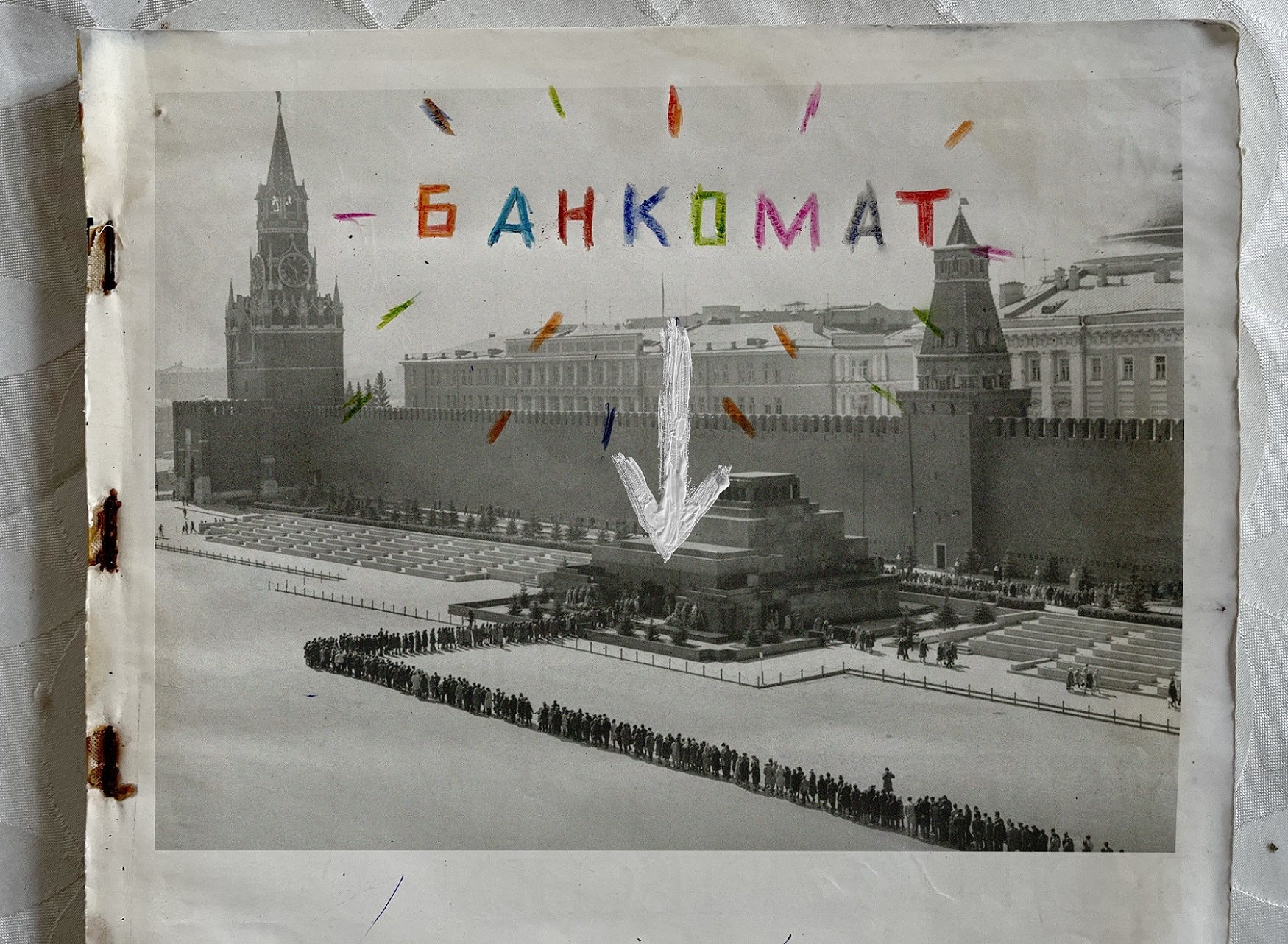
“ATM” written over a photo of the line to Lenin's Mausoleum in Moscow
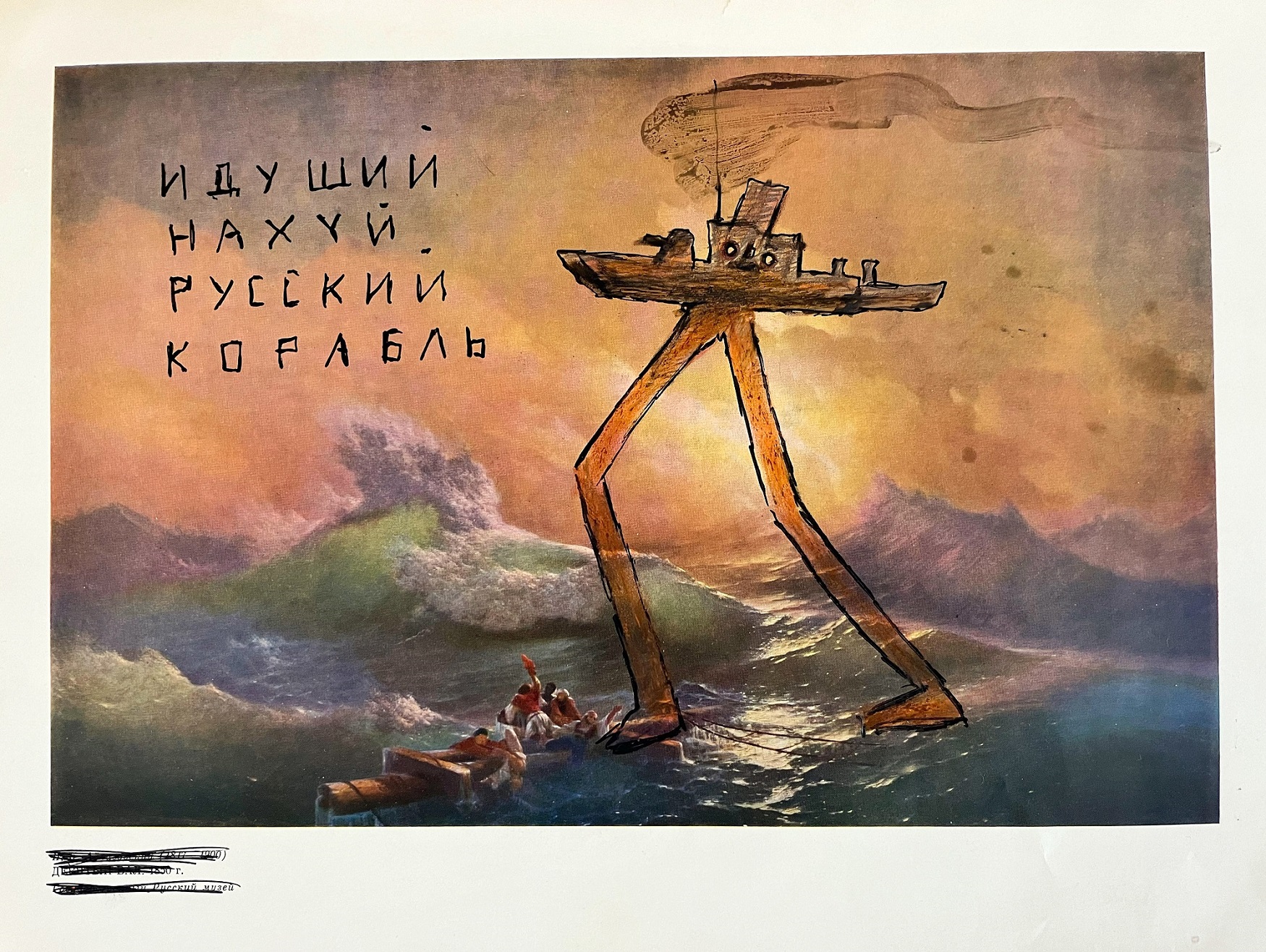
“The Russian warship on its way to f*ck itself” — following the order given by a Ukrainian border guard, who refused to surrender on the first day of the full-scale war
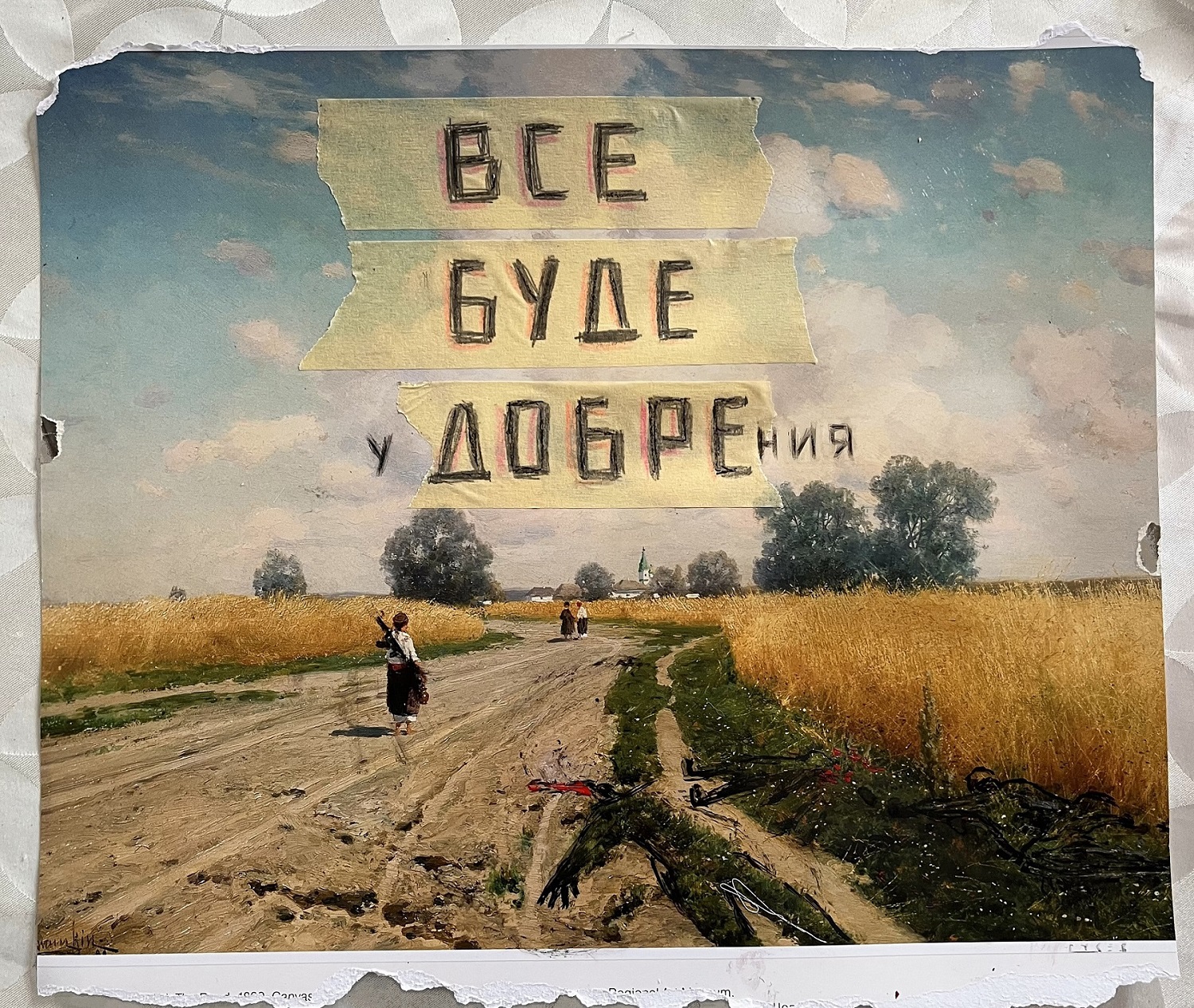
“It’s gonna be f-in-ertilizers” in a collage with an altered reproduction of “The Road” by Konstantin Kryzhitsky, who was of Ukrainian-Polish descent. “It’s gonna be fine” is a song by Okean Elzy, and the word “fertilizers” hints at the fate of Russian soldiers on Ukraine’s land.
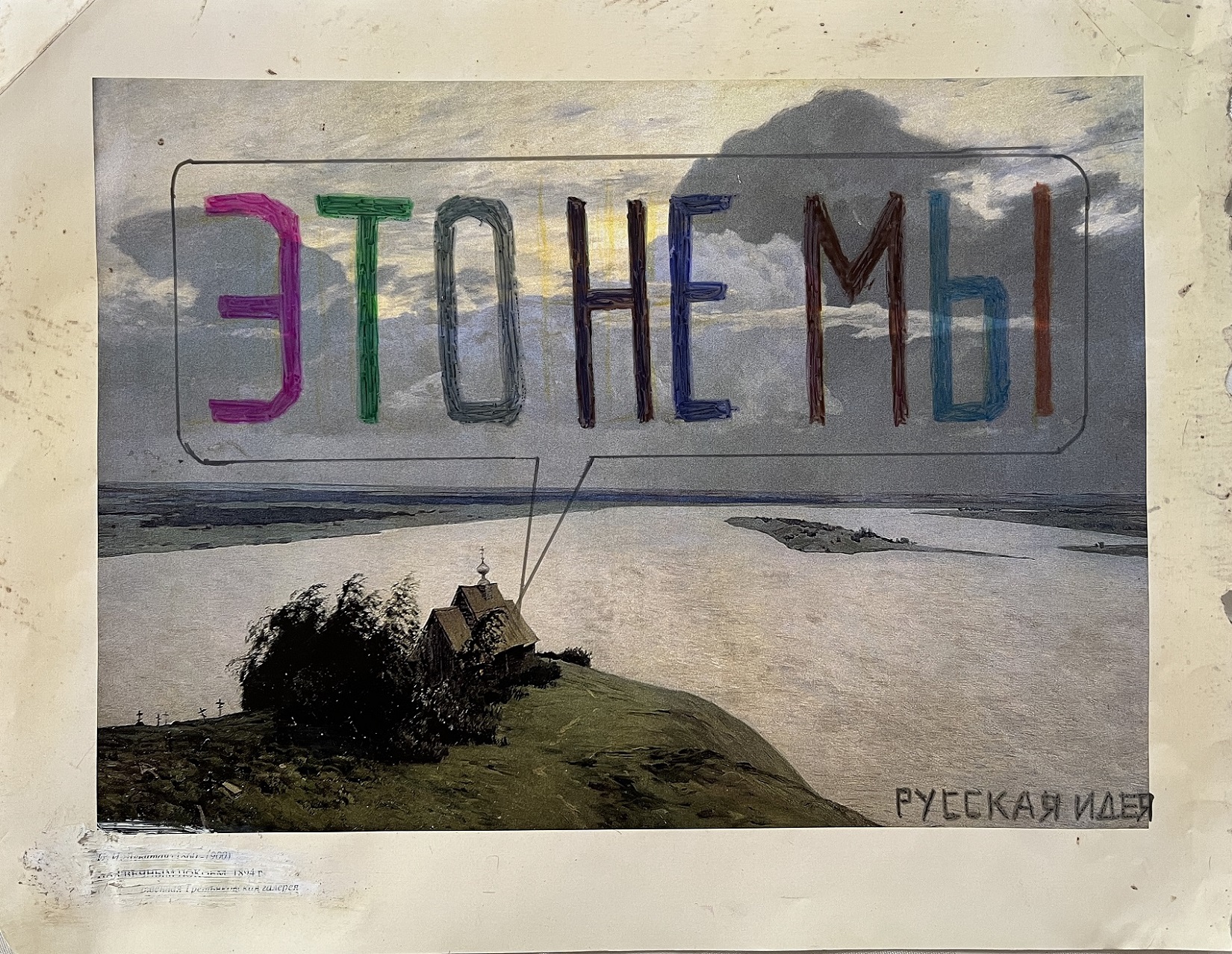
“It’s not our fault; The Russian Idea” written over the reproduction of “Over Eternal Peace” by Russian artist Isaac Levitan
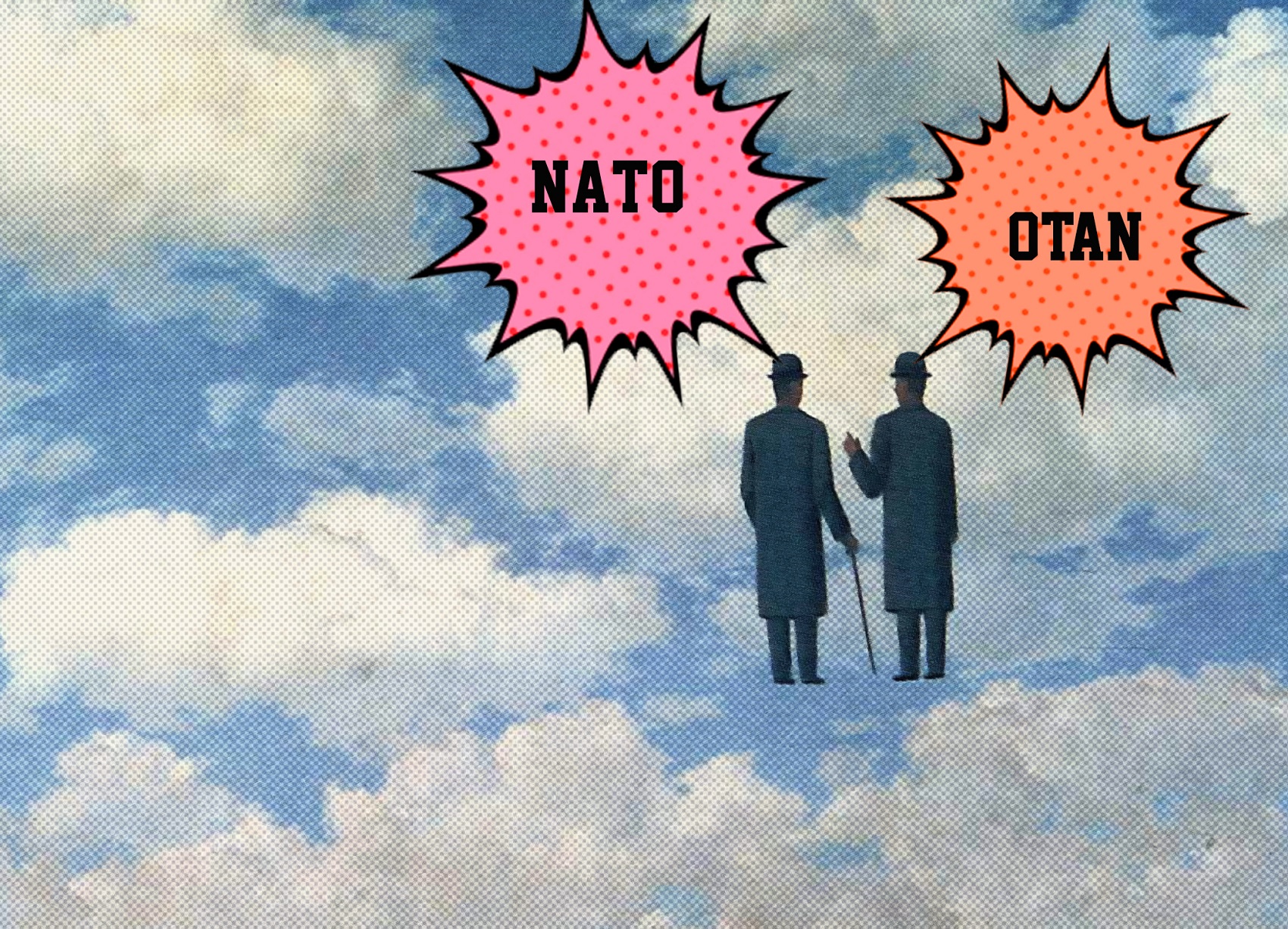
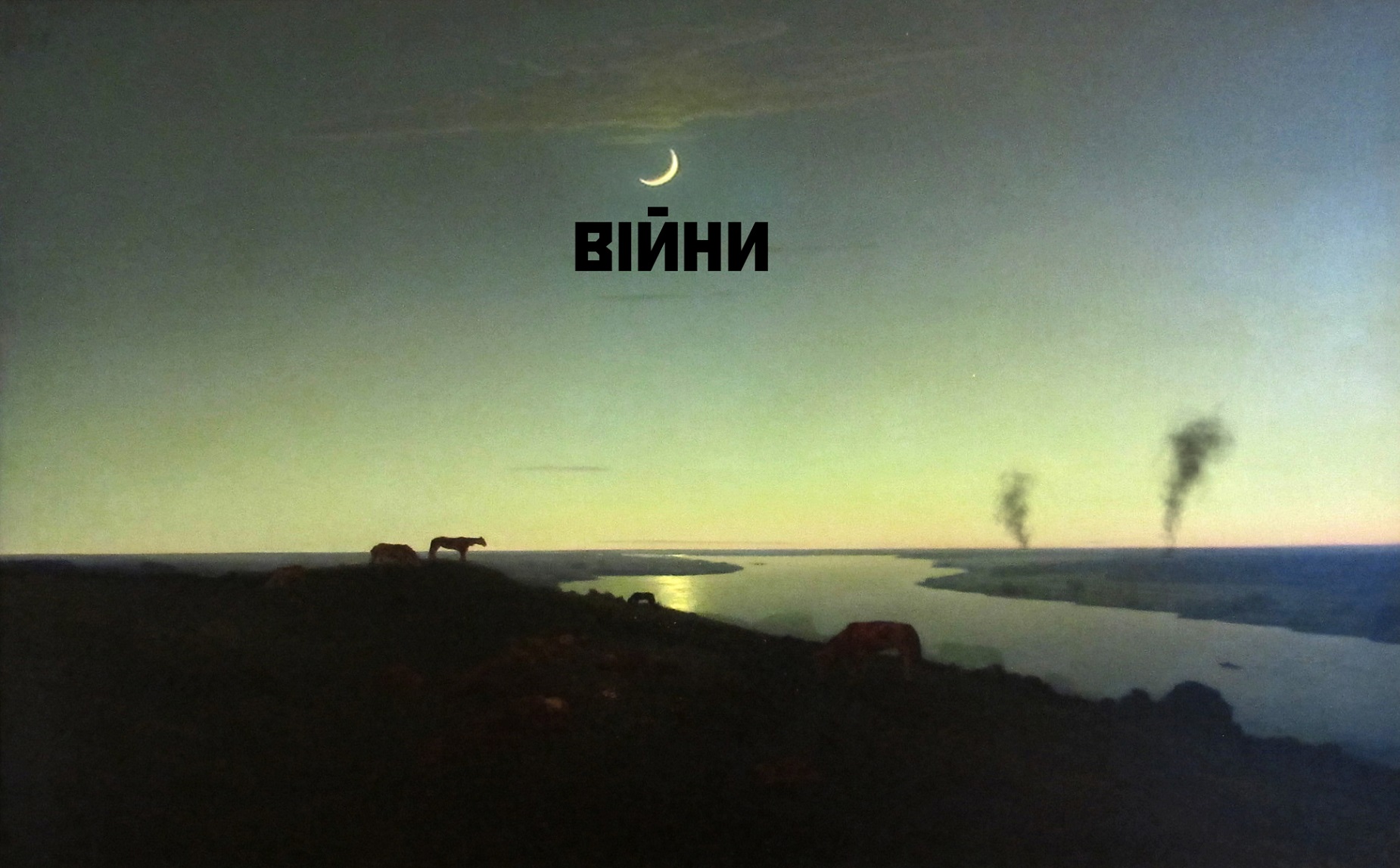
“Of the war.” The words “moon” and “month” are homonyms in Ukrainian, so this altered reproduction of the painting by Ukrainian, Mariupol-born artist Arkhyp Kuindzhi says “A month of the war”
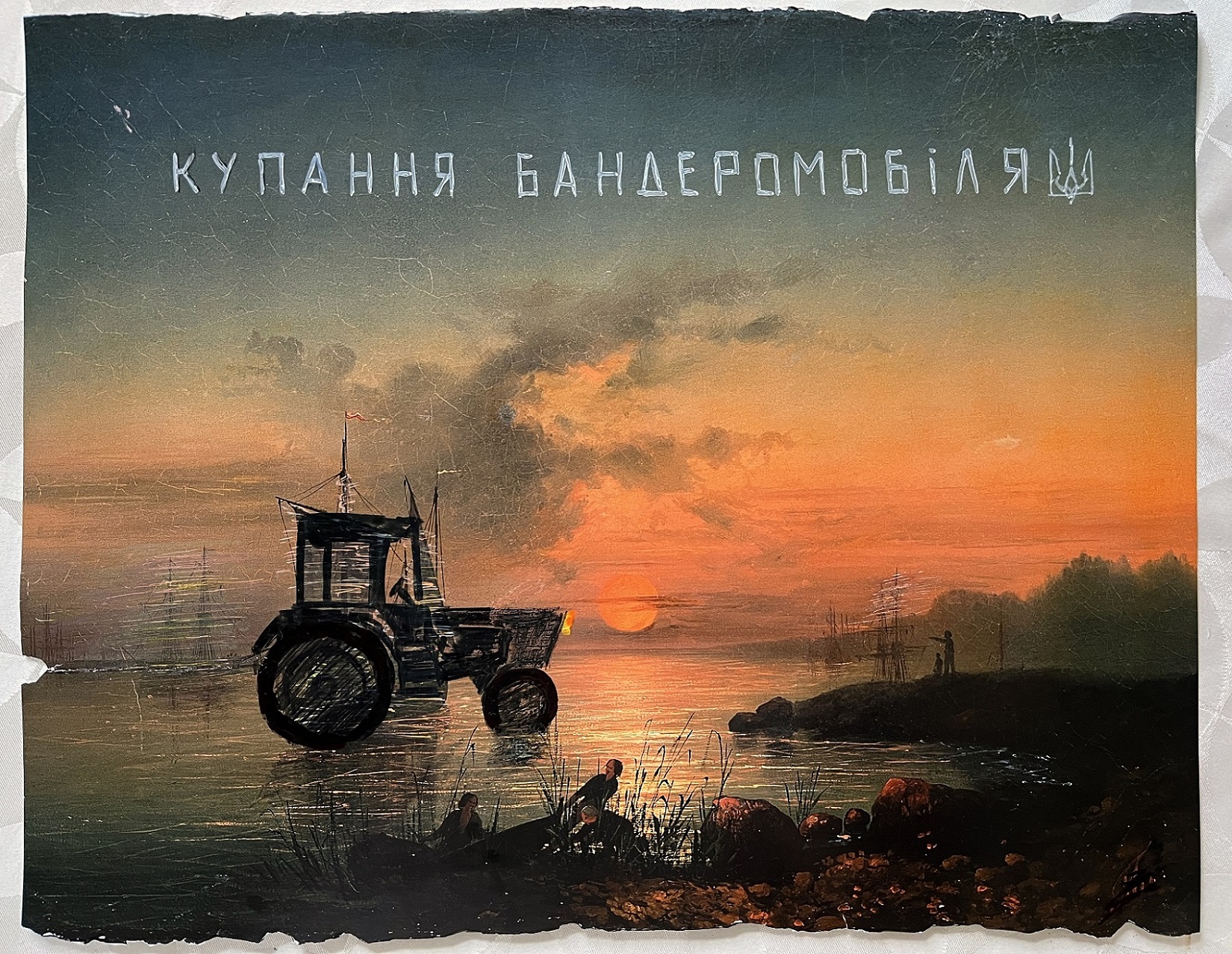
“Bathing of the Banderamobile”
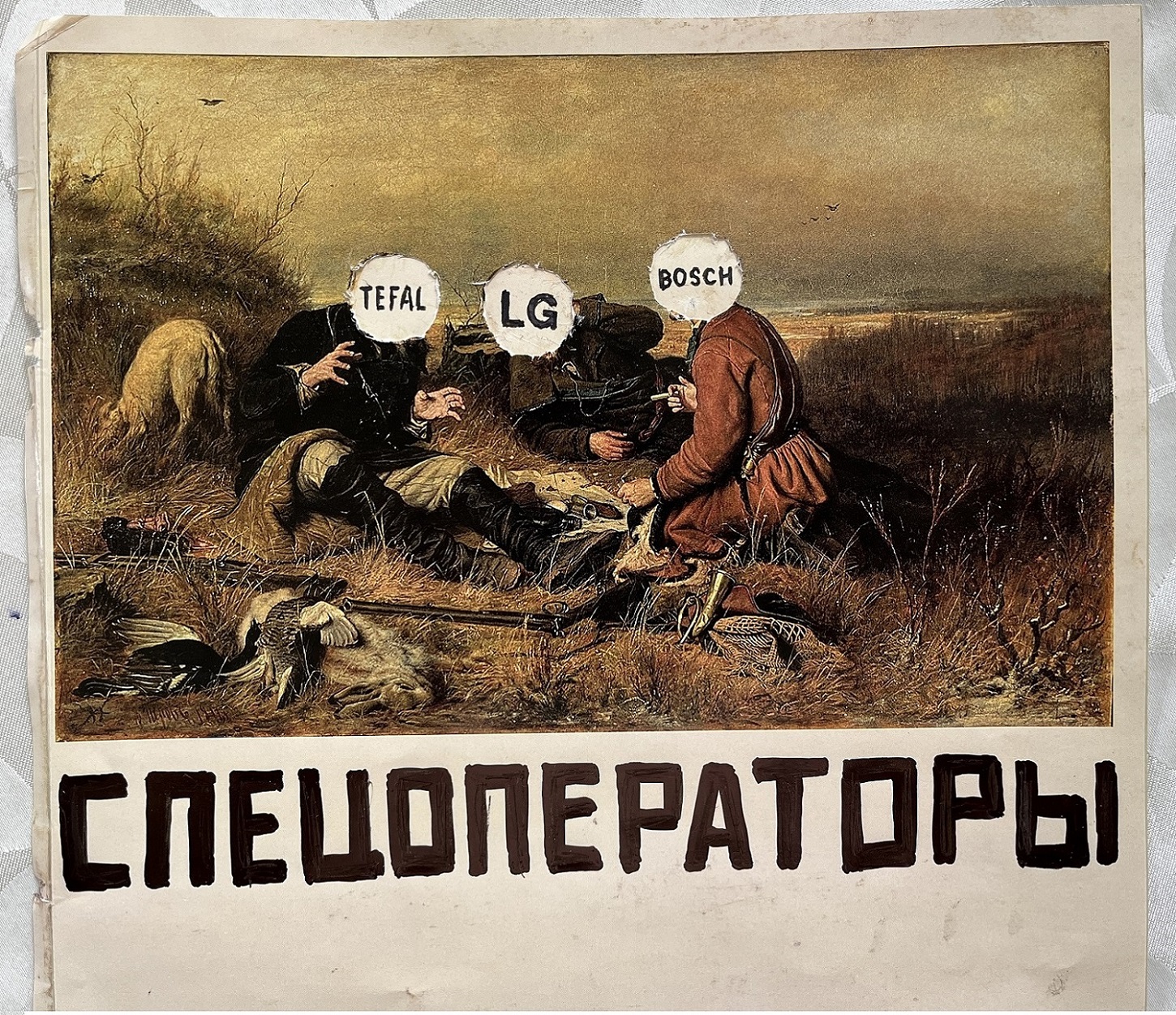
“Special operators.” An altered reproduction of “The Hunters at Rest” by Russian painter Vasilii Perov
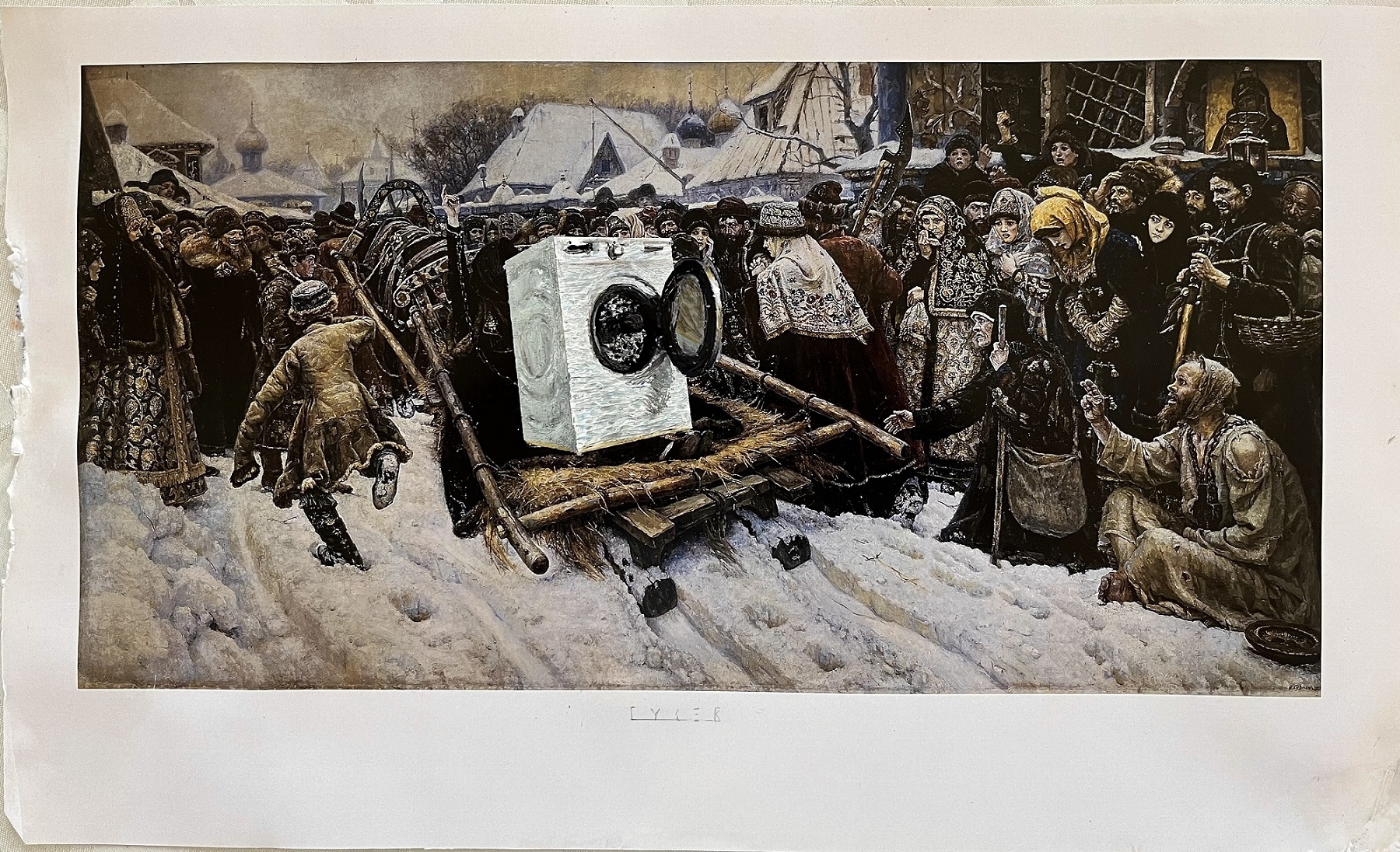
“Hey, belt after belt, feed the bullets!” is a quote from a patriotic song of the Ukrainian Insurgent Army
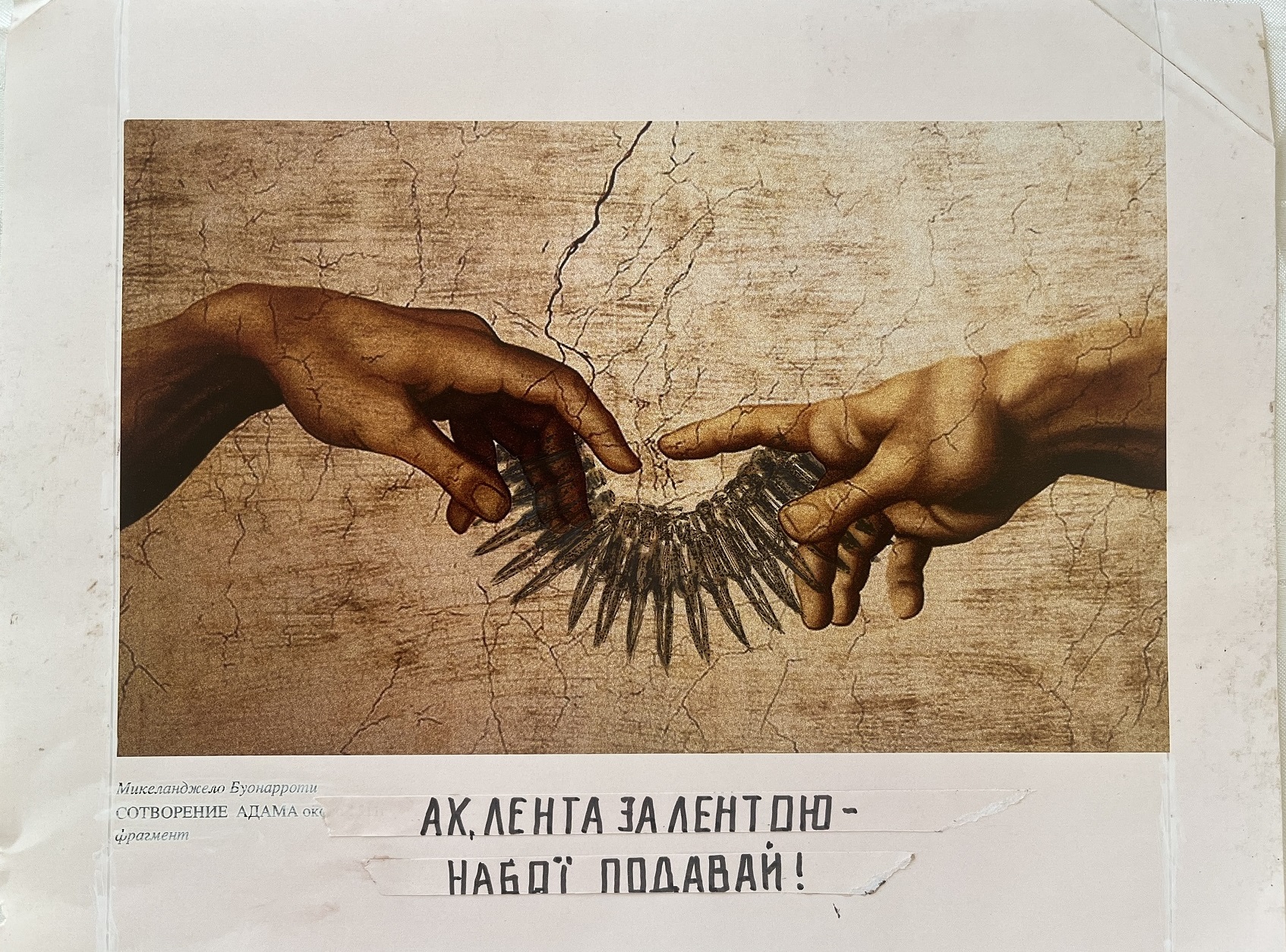
“Hey, belt after belt, feed the bullets!” is a quote from a patriotic song of the Ukrainian Insurgent Army

“Philatelists” written over a Ukrainian postage stamp in reference to the excitement over the issuing of the “Russian warship, go f*ck yourself” stamp in spring
New and best
